
Go, Rust, Docker & K8s Mastery Bundle
214+ Hours Beginner - Advanced
Purchase of this bundle gives you access to all of our existing & future courses during your membership year (12 month membership).

What You'll Learn
This is a comprehensive and advanced training for the engineer who wants cutting edge training in architecture, microservices, & popular technologies. You will be challenged to think about what you’re doing and why, with a focus on making you a better engineer.
Requirements
You don't need to have prior experience with Go, Rust, Docker, or Kubernetes. However, it is helpful to be familiar with basic programming concepts (i.e structural vs object oriented programming, command line, etc..).
Detailed Course Info- Skill Level: Beginner - Advanced
- Bundle Length: 214+ Hrs
Note: All of our bundles are for a one year subscription to the course content. This includes all updates and new content added during that time.
Team Pricing: We offer special pricing models for teams
Courses Included in the Bundle
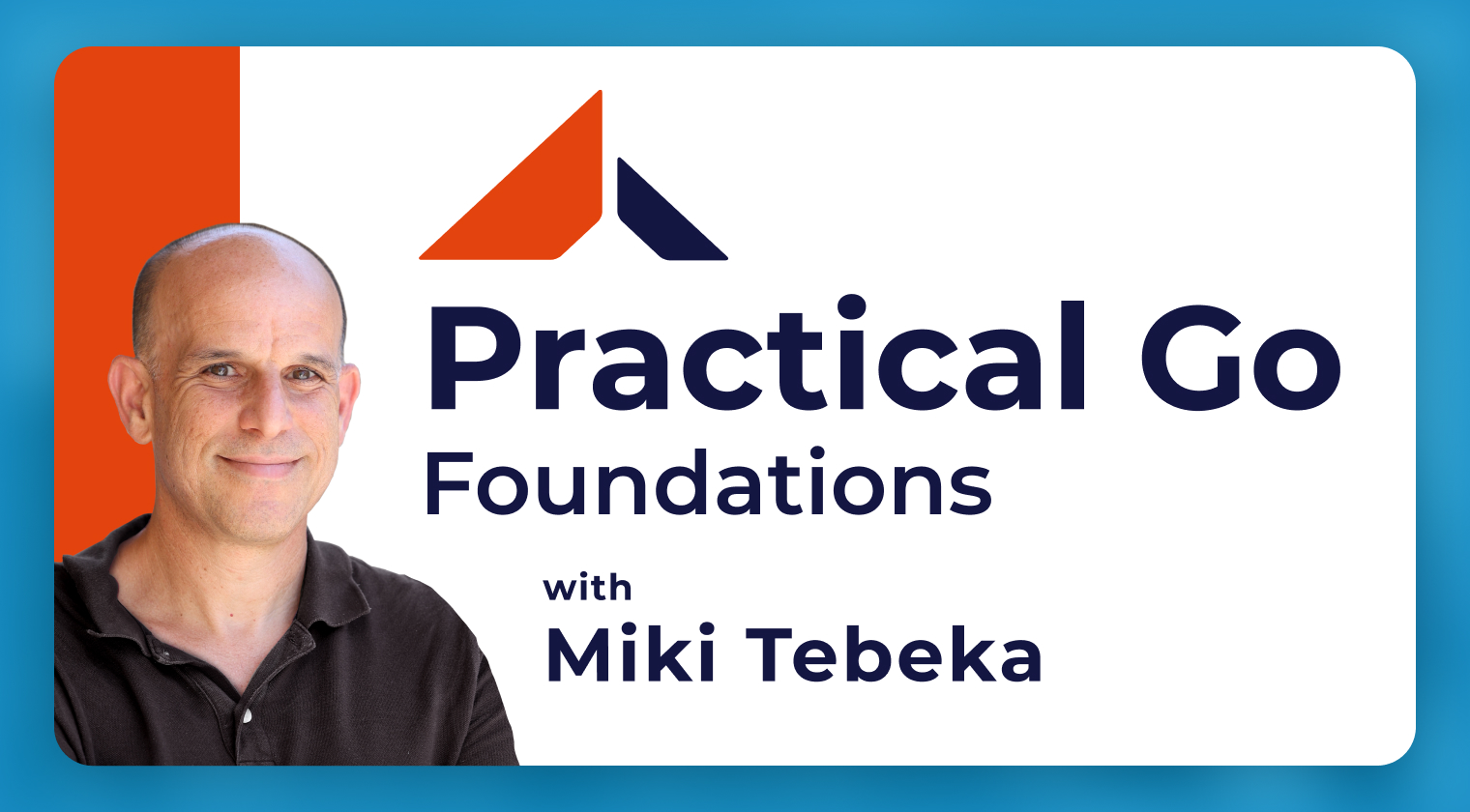
18+ total hours
Intermediate
Practical Go Foundations
This introductory course explores topics like strings, REST APIs, error handling, testing, sorting, and more! Perfect for engineers just starting their journey into Go.
with: Miki Tebeka
View Course Info

18+ total hours
Intermediate
Practical Go Foundations
This introductory course explores topics like strings, REST APIs, error handling, testing, sorting, and more! Perfect for engineers just starting their journey into Go.
with: Miki Tebeka
Course Introduction
This course will help you become familiar with the basic concepts of the Go programming language. Through lectures and coding exercises, you’ll learn about the core concepts needed to become a productive Go developer.
This course is part of the Ultimate Go Track. Not sold separately.
Note: All of our bundles are for a one-year subscription.
At the end of the subscription period, your membership does not automatically renew.
Requirements:
You need to know how to program and core concepts of working with computers (such as files, HTTP, memory management…)
- A basic understanding of the Go programming language.
- Some experience with the Go Tour is recommended.
You should have the following installed on your computer prior to the workshop:
- Go SDK from golang.org/dl/
- An IDE, either VSCode with Go extension or GoLand
- Git
Course Outline
Module 1 - Introduction & Setup
- 1.1 - Introduction to Go
- 1.2 - Setting Up So You Can Get Started
- 1.3 - Writing Your First Go Program, Compiling & Running It
Module 2 - Data Structures & REST APIs
- 2.1 - Understanding Strings in Go, Formatted Output
- 2.2 - Calling REST APIs, HTTP Requests, JSON
- 2.3 - Working with Files, Using Defer to Manage Resources, Error Handling
- 2.4 - Composing
io.Readerandio.Writer - 2.5 - Working with Slices, Slices Internals
Module 3 - Structures, Methods, & Interfaces
- 3.1 - Defining & Creating Structs
- 3.2 - Adding Methods to Structs
- 3.3 - Creating and Implementing Interfaces
- 3.4 - The Empty Interface
- 3.5 - Using Generics
Module 4 - Panics & Maps
- 4.1 - Handling Panics
- 4.2 - Calculating Word Frequency, Working with Maps
Module 5 - Concurrency
- 5.1 - Overview of Concurrency in Go
- 5.2 - Using goroutines and Channels
- 5.3 - Iterating Over Channels, Closing Channels
- 5.4 - Using the Fan-Out Pattern
- 5.5 - Exercise: Converting Sequential Algorithms to Concurrent
- 5.6 - Using the Sync Package
- 5.7 - Using the Select, Working with Multiple Channels, Timeouts and Cancellations
- 5.8 - Exercise: Real-Time Bidding, Adding Timeouts
Module 6 - Project Engineering
- 6.1 - Documenting Your Code
- 6.2 - Testing Your Code
- 6.3 - Dependency Management, go mod
- 6.4 - Using the Testify Library
- 6.5 - Exercise: Reading Test Cases from a TOML File
- 6.6 - Fuzz Testing
- 6.7 - Installing and Linters, the “go tool” Command
- 6.8 - Project Structure, Splitting to Sub-Packages
- 6.9 - Writing an HTTP Server
- 6.10 - Testing HTTP Request Handlers
- 6.11 - Adding Logging and Metrics
- 6.12 - Configuring Your Server: Environment Variables, Flags, Configuration Files
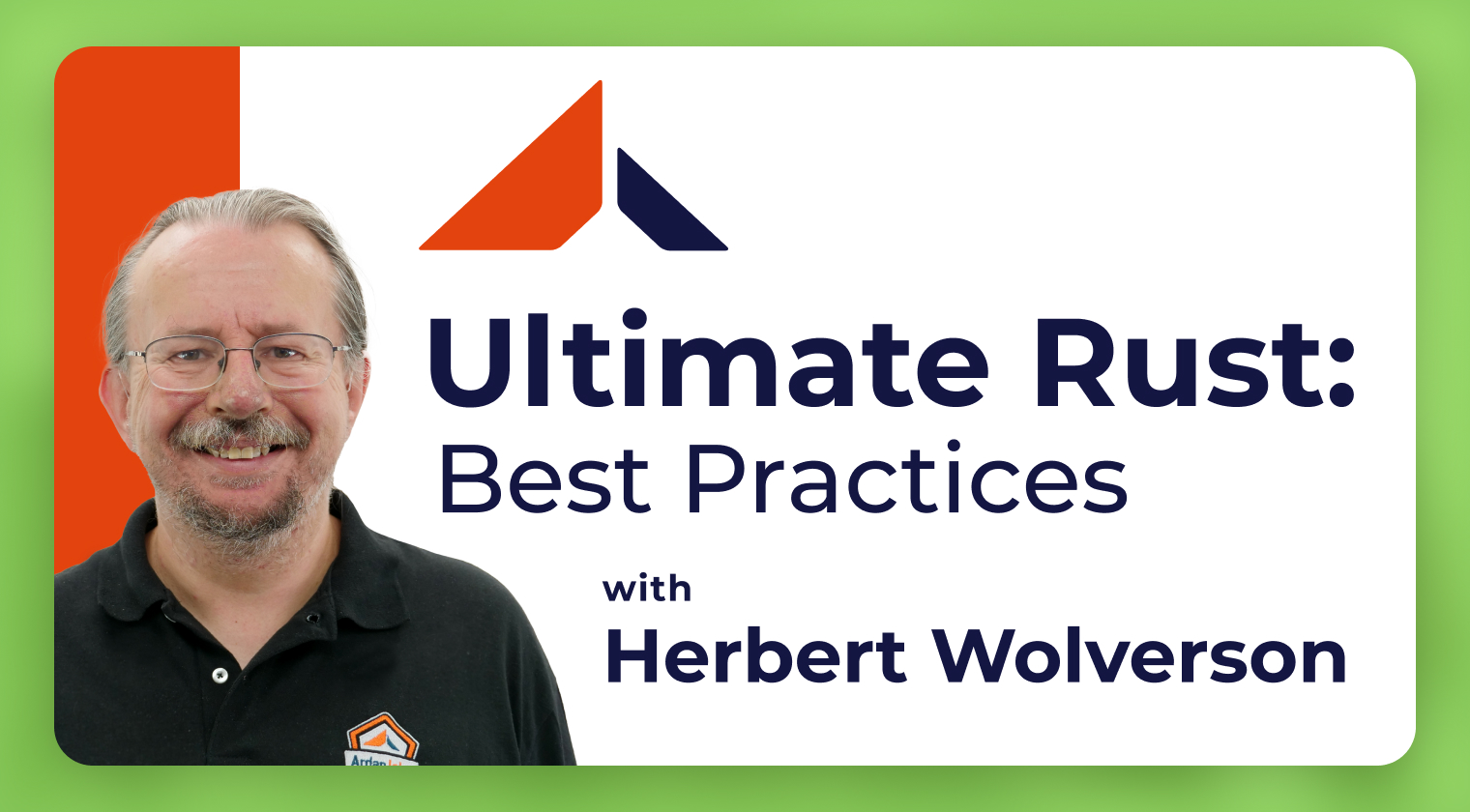
1+ total hours
Beginner
Ultimate Rust Best Practices
This course covers many best practices to help you with integrate Rust into your workflow, and let Rust’s tooling work for you. It includes formatting, linting, dependencies, vulnerabilities, code style and general development advice.
with: Herbert Wolverson
View Course Info

1+ total hours
Beginner
Ultimate Rust Best Practices
This course covers many best practices to help you with integrate Rust into your workflow, and let Rust’s tooling work for you. It includes formatting, linting, dependencies, vulnerabilities, code style and general development advice.
with: Herbert Wolverson
Course Introduction
This course covers many best practices to help you with integrate Rust into your workflow, and let Rust’s tooling work for you. It includes formatting, linting, dependencies, vulnerabilities, code style and general development advice.
Note: All of our bundles are for a one-year subscription.
At the end of the subscription period, your membership does not automatically renew.
Course Outline
Section 1: Tooling
- 1.0 - Introduction - Formatting
- 1.1 - Clippy (the linter)
- 1.2 - Documentation
- 1.3 - Understanding Dependencies
- 1.4 - Managing Your Own Dependencies
- 1.5 - Checking for Vulnerabilities
- 1.6 - Check for Outdated Dependencies
- 1.7 - Denying Dependencies by Licensing
Section 2 : Code Best Practices
- 2.0 - Favor Iterators
- 2.1 - Minimize Cloning (we have an alternative name as well Cloning Can Be a Code Smell)
- 2.2 - Don’t Emulate OOP
- 2.3 - Favor Small Functions
- 2.4 - Clever Code
- 2.5 - Floating Point Numbers
- 2.6 - Platform & Feature Specific Code
Section 3 : General Best Practices
- 3.0 - TANSTAAFL (There Ain’t No Such Thing As A Free Lunch)
- 3.1 - YAGNI : You Ain’t Gonna Need It
- 3.2 - Domain Boundaries
- 3.3 - Taming Compile Times
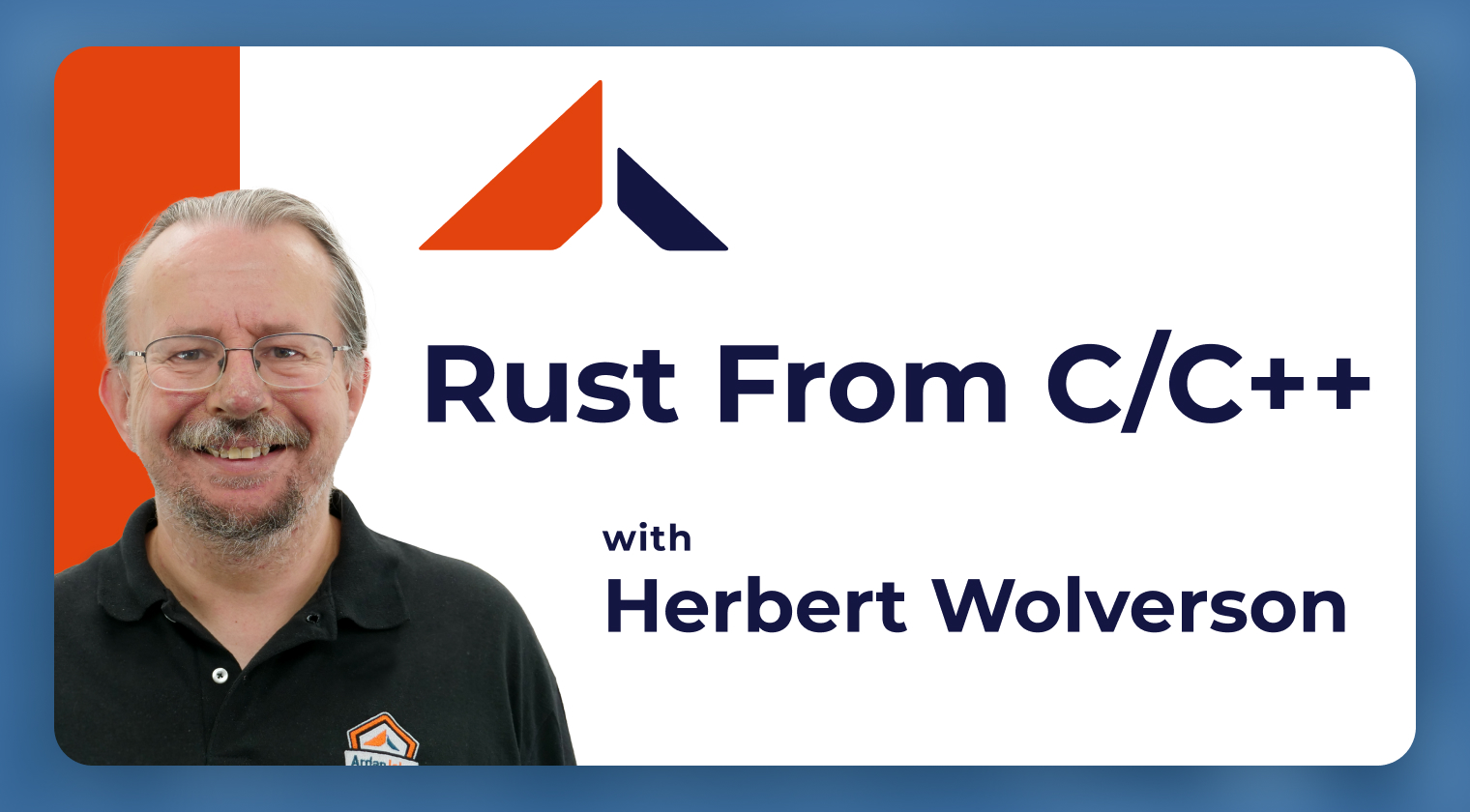
6+ total hours
Beginner
Intermediate
Rust From C/C++
This course bridges the transition from C and C++ to Rust by highlighting their similarities and differences. Exploring Rust's native compilation, memory management, and advanced features, you'll compare and contrast key concepts like types, control flow, and data structures in this class. Delve into Rust's strengths in memory safety and concurrency, alongside its unified tool, Cargo, streamlining development. Additionally, learn how Rust facilitates interoperability with C and C++ through Foreign Function Interface (FFI).
with: Herbert Wolverson
View Course Info

6+ total hours
Beginner
Intermediate
Rust From C/C++
This course bridges the transition from C and C++ to Rust by highlighting their similarities and differences. Exploring Rust's native compilation, memory management, and advanced features, you'll compare and contrast key concepts like types, control flow, and data structures in this class. Delve into Rust's strengths in memory safety and concurrency, alongside its unified tool, Cargo, streamlining development. Additionally, learn how Rust facilitates interoperability with C and C++ through Foreign Function Interface (FFI).
with: Herbert Wolverson
Course Introduction
This course bridges the transition from C and C++ to Rust by highlighting their similarities and differences. Exploring Rust’s native compilation, memory management, and advanced features, you’ll compare and contrast key concepts like types, control flow, and data structures in this class. Delve into Rust’s strengths in memory safety and concurrency, alongside its unified tool, Cargo, streamlining development. Additionally, learn how Rust facilitates interoperability with C and C++ through Foreign Function Interface (FFI).
This course is part of the Ultimate Rust track. Not sold separately.
Note: All of our bundles are for a one-year subscription.
At the end of the subscription period, your membership does not automatically renew.
Course Outline
Introduction:
- 1.0 - Introduction
Hello World:
- 2.1 - Setup & Update Rust
- 2.2 - Setup Dev Environment
- 2.3 - IDE Configuration
- 2.4 - Rust Fundamentals
Touring the Rust Langauge:
- 3.1 - Primitive Types
- 3.2 - Mutability
- 3.3 - Primitive Type Conversion
- 3.4 - Numeric Overflow
- 3.5 - Control Flow
- 3.6 - Loops
- 3.7 - Strings
- 3.8 - Functions and Scopes
- 3.9 - Structures
- 3.10 - Structure Functions
- 3.11 - Destructors - Drop
- 3.12 - Tuples and Destructuring
- 3.13 - Enums
- 3.14 - Containers
- 3.15 - Iterators
- 3.16 - Move by Default
- 3.17 - Borrowing
- 3.18 - Slices
- 3.19 - Memory Management
- 3.20 - Concurrency
- 3.21 - Program Organization
- 3.22 - Traits
- 3.23 - Generics
- 3.24 - Error Handling
Touring the Rust Ecosystem:
- 4.1 - Tool Equivalencies
- 4.2 - Unit Tests
- 4.3 - Benchmarking
Calling C from Rust with FFI:
- 5.1 - Calling C from Rust with FFI
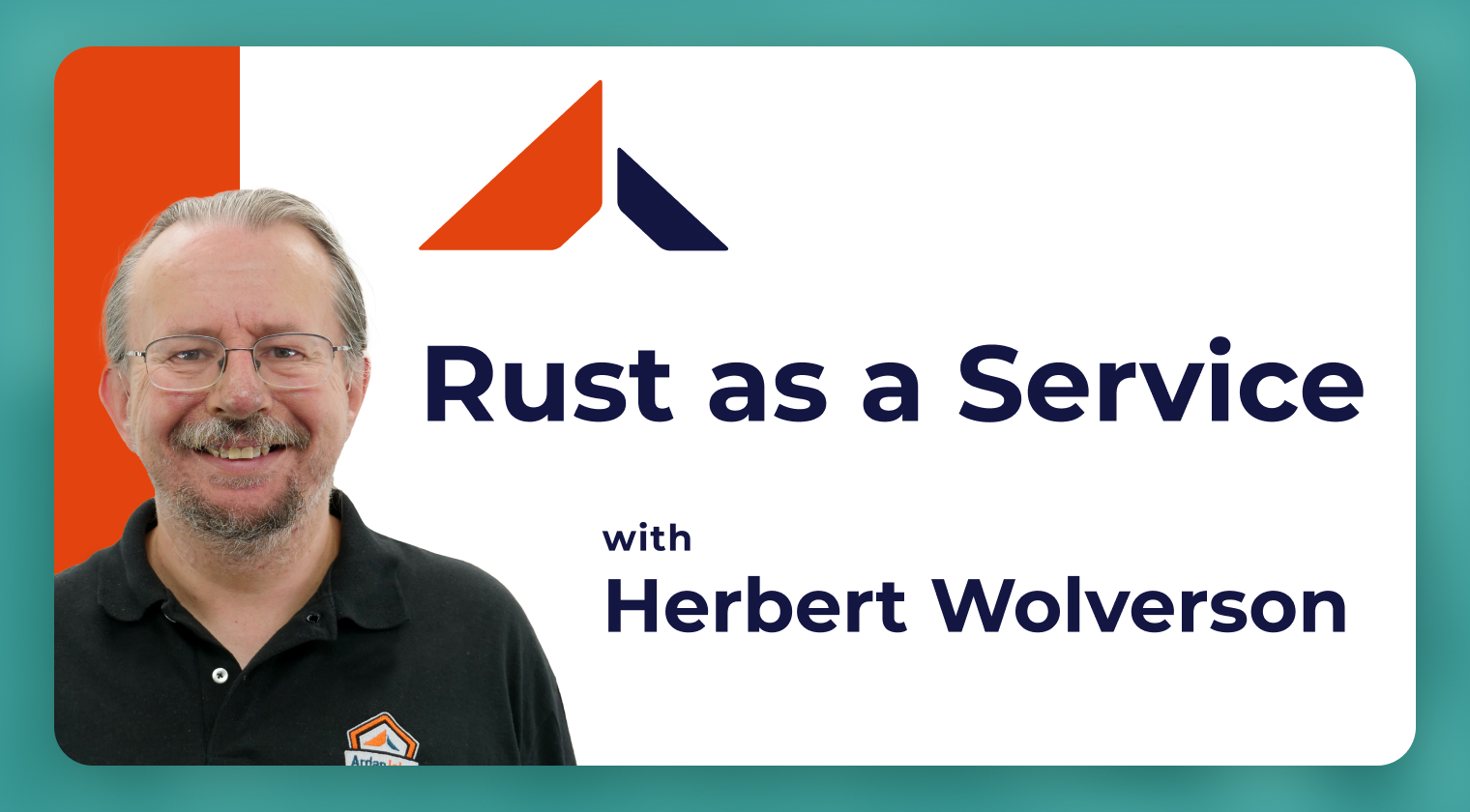
7+ total hours
Beginner
Intermediate
Rust as a Service
This course teaches integrating Rust into service-oriented architectures, covering REST server development, data handling, error management, and modularization. You'll learn tracing, automated OpenAPI documentation, configuration for different environments, and alternative connectivity mechanisms like gRPC and WebSockets. Explore deploying a test service in a containerized environment, along with insights into service design, deployment strategies, and scaling. This prepares you for deploying high-performance Rust services in enterprise environments.
with: Herbert Wolverson
View Course Info

7+ total hours
Beginner
Intermediate
Rust as a Service
This course teaches integrating Rust into service-oriented architectures, covering REST server development, data handling, error management, and modularization. You'll learn tracing, automated OpenAPI documentation, configuration for different environments, and alternative connectivity mechanisms like gRPC and WebSockets. Explore deploying a test service in a containerized environment, along with insights into service design, deployment strategies, and scaling. This prepares you for deploying high-performance Rust services in enterprise environments.
with: Herbert Wolverson
Course Introduction
This course teaches integrating Rust into service-oriented architectures, covering REST server development, data handling, error management, and modularization. You’ll learn tracing, automated OpenAPI documentation, configuration for different environments, and alternative connectivity mechanisms like gRPC and WebSockets. Explore deploying a test service in a containerized environment, along with insights into service design, deployment strategies, and scaling. This prepares you for deploying high-performance Rust services in enterprise environments.
This course is part of the Ultimate Rust track. Not sold separately.
Note: All of our bundles are for a one-year subscription.
At the end of the subscription period, your membership does not automatically renew.
Course Outline
Introduction:
- 1.0 - Introduction
REST Service:
- 2.1 - Minimal HTTP Server
- 2.2 - Service Stack
- 2.3 - Extractors
- 2.4 - Add a Simple Tower Layer (State)
- 2.5 - Add a Simple Tower Layer (Mutable State)
- 2.6 - Multiple States - Extension Layers
- 2.7 - Quick Recap on State and Layers
- 2.8 - Nesting Multiple Routers
- 2.9 - Nested Routers with State
- 2.10 - Calling Other Services
- 2.11 - Returning Status Codes
- 2.12 - Using IntoResponse
- 2.13 - Error Handling with IntoResponse
- 2.14 - Quick Recap on Nesting, Making Calls and Responses
- 2.15 - Serving Static Content with Tower
- 2.16 - Simple Header-Based Authentication
- 2.17 - Simple Header-Based Auth with Middleware
- 2.18 - Middleware Auth with Injection
- 2.19 - Selectively Applying Layers
- 2.20 - Router Layers
- 2.21 - Layer Recap
Tracing:
- 3.1 - Minimal Example
- 3.2 - Logging Axum/Tower
- 3.3 - Timing Spans
- 3.4 - Axum Spans
- 3.5 - Logging to a File
- 3.6 - Structured Logging to JSON
- 3.7 - OpenTelemetry
OpenAPI Documentation:
- 4.1 - OpenAPI Documentation
Handling Service Configuration:
- 5.1 - Environment Variables with .env
- 5.2 - The Config Crate - Basics
- 5.3 - Loading Config via HTTP
- 5.4 - CLI configuration with Clap
- 5.5 - Recap
Handling Service Configuration:
- 6.1 - Hello Tonic - Protocol Definition
- 6.2 - Hello Tonic - Project Definition and Build
- 6.3 - Hello Tonic - The Server
- 6.4 - Hello Tonic - The Client
- 6.5 - gRPC Streaming
- 6.6 - gRPC Streaming - Protocol Definition
- 6.7 - gRPC Streaming - The Server
- 6.8 - gRPC Streaming - The Client
- 6.9 - Recap So Far
- 6.10 - Authentication
- 6.11 - Tracing
- 6.12 - When to use gRPC
Web Sockets:
- 7.1 - Minimal Echo Server
- 7.2 - A native WS client
- 7.3 - JSON
Service Deployment:
- 8.1 - Test Service
- 8.2 - Native Host Deployment
- 8.3 - Docker Deployment
Service Design:
- 9.1 - Understanding Your Company Architecture
- 9.2 - Designing Individual Services
- 9.3 - Combining Services into a Modular Monolith
- 9.4 - Service Exposure
- 9.5 - Scaling Out
Wrap Up:
- 10.1 - Wrap Up
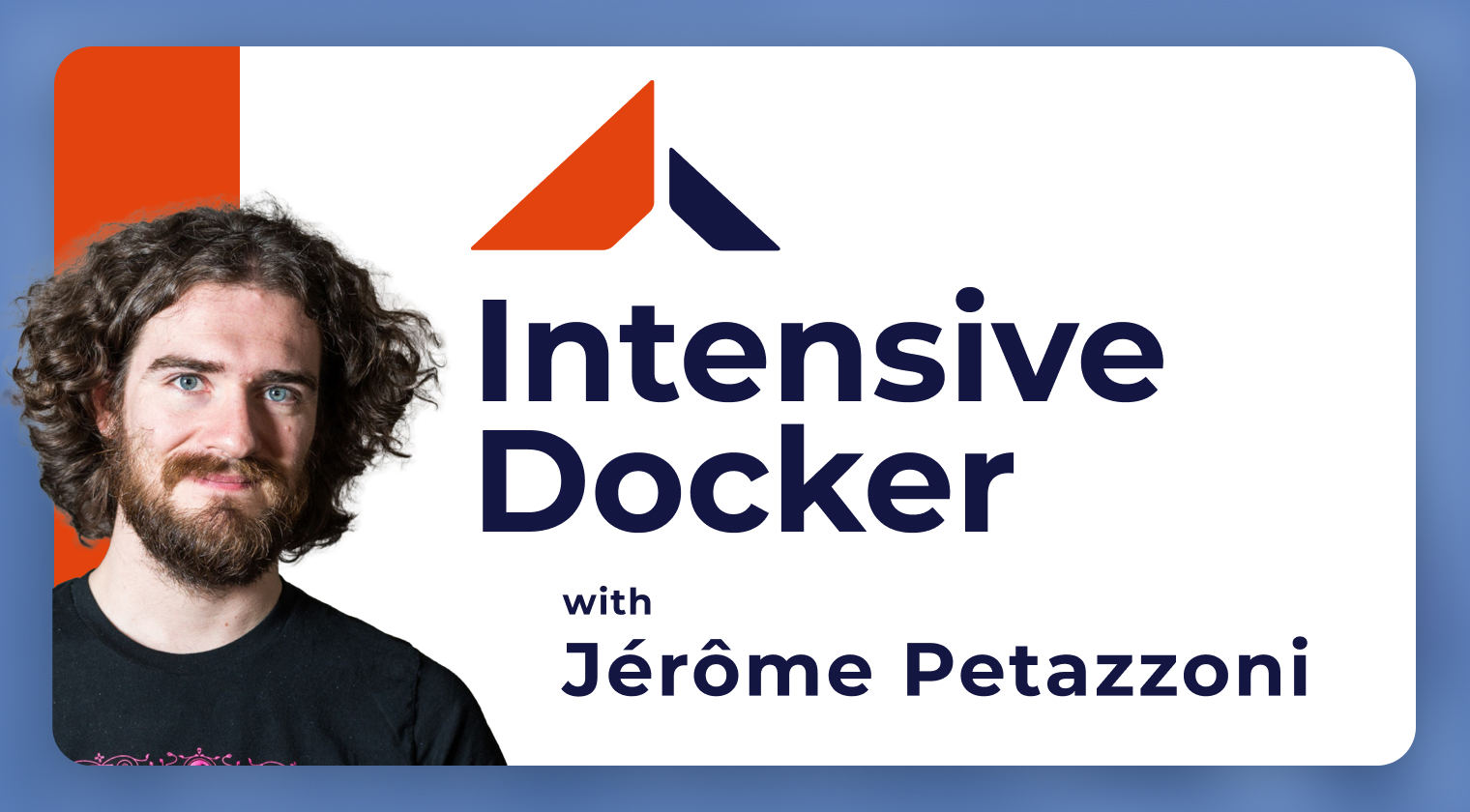
20+ total hours
Beginner
Intensive Docker
This is a course for devs, ops, architects; all kinds of IT professionals and engineers who need to understand Docker and containers.
with: Jérôme Petazzoni
View Course Info

20+ total hours
Beginner
Intensive Docker
This is a course for devs, ops, architects; all kinds of IT professionals and engineers who need to understand Docker and containers.
with: Jérôme Petazzoni
Course Introduction
This course will help you establish foundational concepts of Docker & containers. You’ll complete labs and assignments that will help you become productive at designing, packaging, deploying and operating modern applications.
This course is part of the Intensive Docker & Kubernetes track. Not sold separately.
Note: All of our bundles are for a one-year subscription.
At the end of the subscription period, your membership does not automatically renew.
Requirements:
- Should be comfortable using the command line.
- Docker installed on your machine.
- No prior experience with containers necessary.
Course Outline
Day 1:
- Introduction to the Docker CLI
- Containers, images, and layers
- What’s signal handling and why it’s important
- Managing container lifecycle
- Building images with Dockerfiles
- Understanding and managing the build cache
Day 2:
- Container networking concepts
- Connecting and exposing containers
- Containerized development environments
- Assembling stacks with Docker Compose
- Service discovery with containers
Day 3:
- Debugging containers
- Names and labels
- Tips, tricks, and best practices for efficient Dockerfiles
- Techniques to reduce image size
- Multi-stage builds
Day 4:
- Advanced BuildKit usage
- Multi-arch images (e.g. for ARM64 platforms)
- Container network drivers
- Control groups and Linux kernel namespaces
- Security features: LSM, capabilities, seccomp2
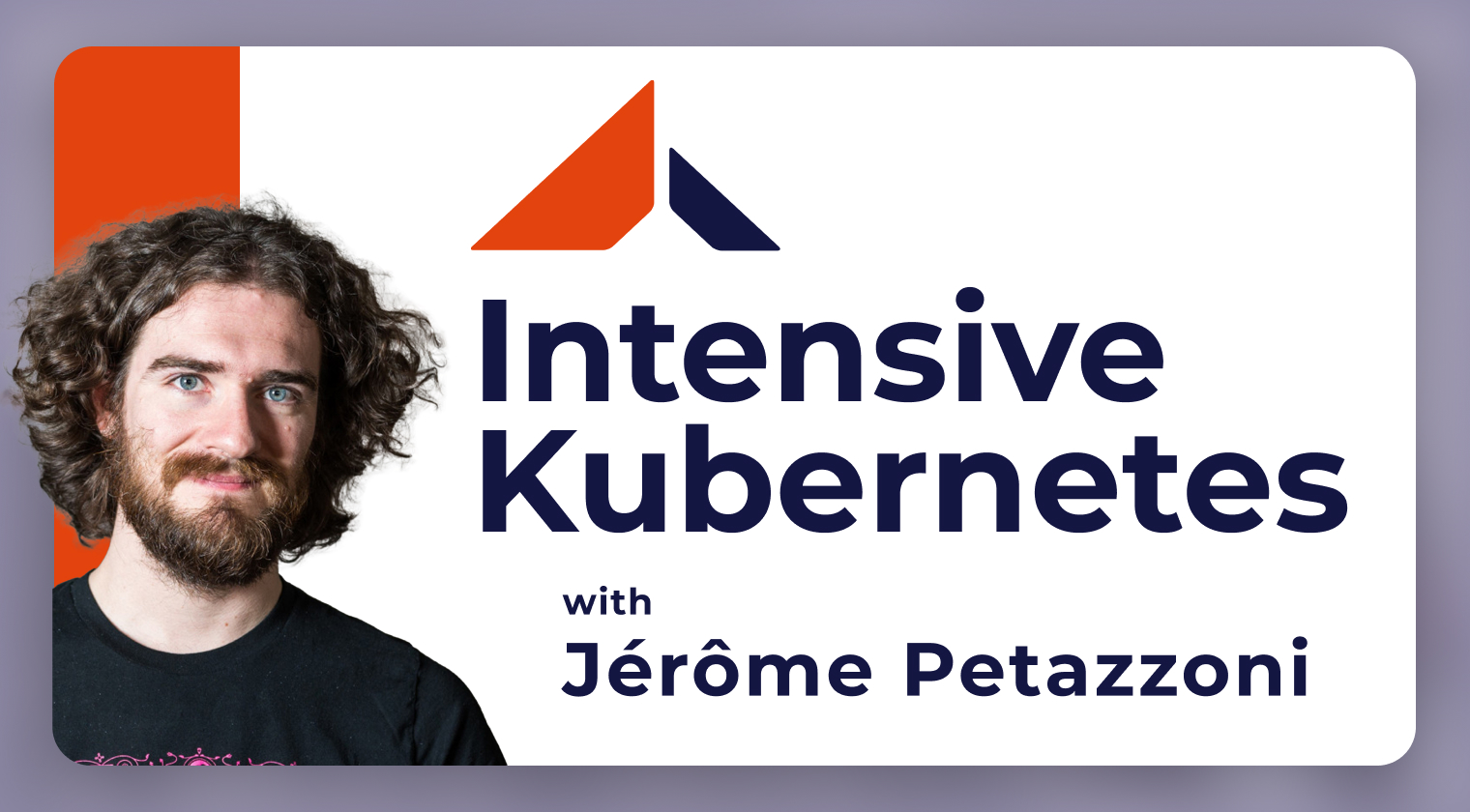
20+ total hours
Intermediate
Intensive Kubernetes
This is a course for devs, ops, architects; all kinds of IT professionals and engineers who need to understand Kubernetes and container orchestration.
with: Jérôme Petazzoni
View Course Info

20+ total hours
Intermediate
Intensive Kubernetes
This is a course for devs, ops, architects; all kinds of IT professionals and engineers who need to understand Kubernetes and container orchestration.
with: Jérôme Petazzoni
Course Introduction
This is a course for any engineer who needs to deploy, scale, and operate applications in “Cloud Native” environments. You’ll complete labs and assignments that will help you become productive with Kubernetes.
This course is part of the Intensive Docker & Kubernetes track. Not sold separately.
Note: All of our bundles are for a one-year subscription.
At the end of the subscription period, your membership does not automatically renew.
Requirements:
- No Kubernetes experience necessary.
- Knowing the difference between a container and an image.
- Knowing how to run a container and how to build an image (with Docker or any other container engine).
- Using SSH to connect to a remote Linux machine.
- Basic shell commands (navigate directories, set environment variables…).
- Using a text editor like vi, nano, or similar.
Course Outline
Day 1:
- Kubernetes architecture overview
- Nodes, Namespaces
- Pods, Replica Sets, Deployments
- Services, service types, and the Kubernetes network model
- Deploying a micro-services application
Day 2:
- YAML in action
- Label and annotations
- Managing logs
- Imperative and declarative models
- Running a local development cluster
- Accessing remote clusters
Day 3:
- Scaling mechanisms
- Daemon Sets
- Labels and selectors
- Rolling updates
- Healthchecks
Day 4:
- Exposing HTTP services with Ingress resources
- Volumes
- Configuration management
- Managing secrets
Day 5:
- Executing batch jobs
- Leveraging Tilt for development environments
- Deploying a cluster with Terraform/OpenTofu (11+ cloud providers supported)
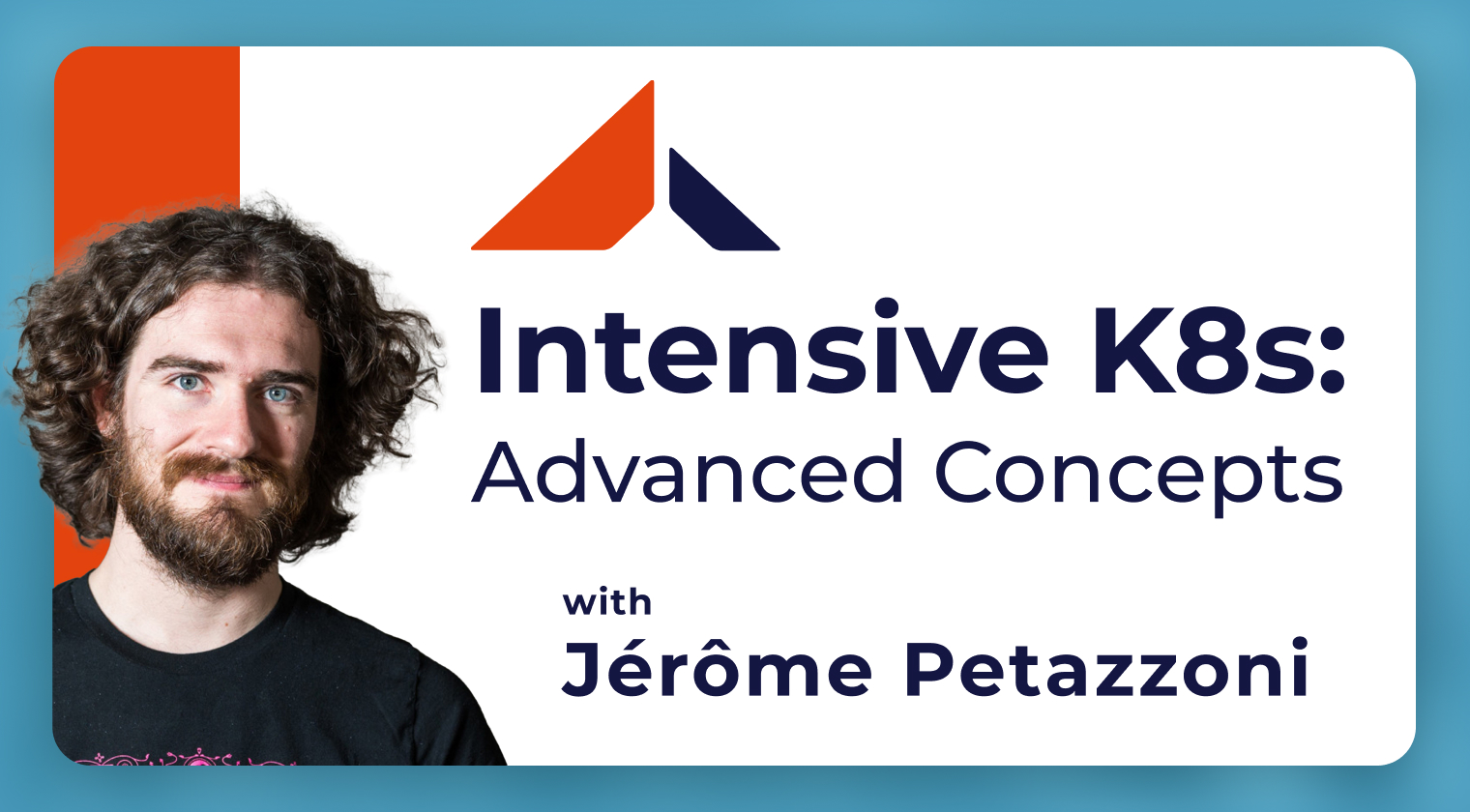
16+ total hours
Intermediate
Intensive Kubernetes: Advanced Concepts
This course covers advanced concepts around application packaging, capacity planning, resource management, security, operators, and the specific mechanisms associated with stateful application deployment.
with: Jérôme Petazzoni
View Course Info

16+ total hours
Intermediate
Intensive Kubernetes: Advanced Concepts
This course covers advanced concepts around application packaging, capacity planning, resource management, security, operators, and the specific mechanisms associated with stateful application deployment.
with: Jérôme Petazzoni
Course Introduction
This course is for devs, ops, and architects, who have already started working with Kubernetes and want to learn more advanced concepts. Students will complete numerous labs and exercises.
This course is part of the Intensive Docker & Kubernetes track. Not sold separately.
Note: All of our bundles are for a one-year subscription.
At the end of the subscription period, your membership does not automatically renew.
Requirements:
- Understanding of Pods, Deployments, Services.
- How to deploy an app and expose it on a Kubernetes cluster.
- Basic notions of what are labels, selectors, YAML manifests.
- Basic shell commands (navigate directories, set environment variables…).
- Using a text editor like vi, nano, or similar.
Course Outline
Day 1: security focus:
- Securing access with network policies
- Managing permissions with RBAC
- Managing secrets with Sealed Secrets
- Pod Security Settings and Admission
Day 2: resource management:
- Understanding requests and limits
- Compressible vs incompressible resources
- Pod eviction and kubelet under pressure
- Horizontal, vertical, and cluster- autoscaling
- Priorities and preemption
- Scaling with custom metrics
Day 3: extending the Kubernetes API:
- Overview of the different extension mechanisms
- Custom Resource Definitions
- Dynamic admission control with webhooks
- The aggregation layer
- Operator concepts
Day 4: operator and controller implementation:
- Operator design techniques
- Studying operators (e.g. Kyverno, cert-manager)
- The kubebuilder framework
- Writing a small operator with kubebuilder
- Events, finalizers, owners and dependents
Day 5: stateful applications:
- Stateful Sets, PV, PVC, Storage Classes
- Use-case: running a Consul cluster
- Dynamic storage provisioning
- Use-case: stateful failover of an active database
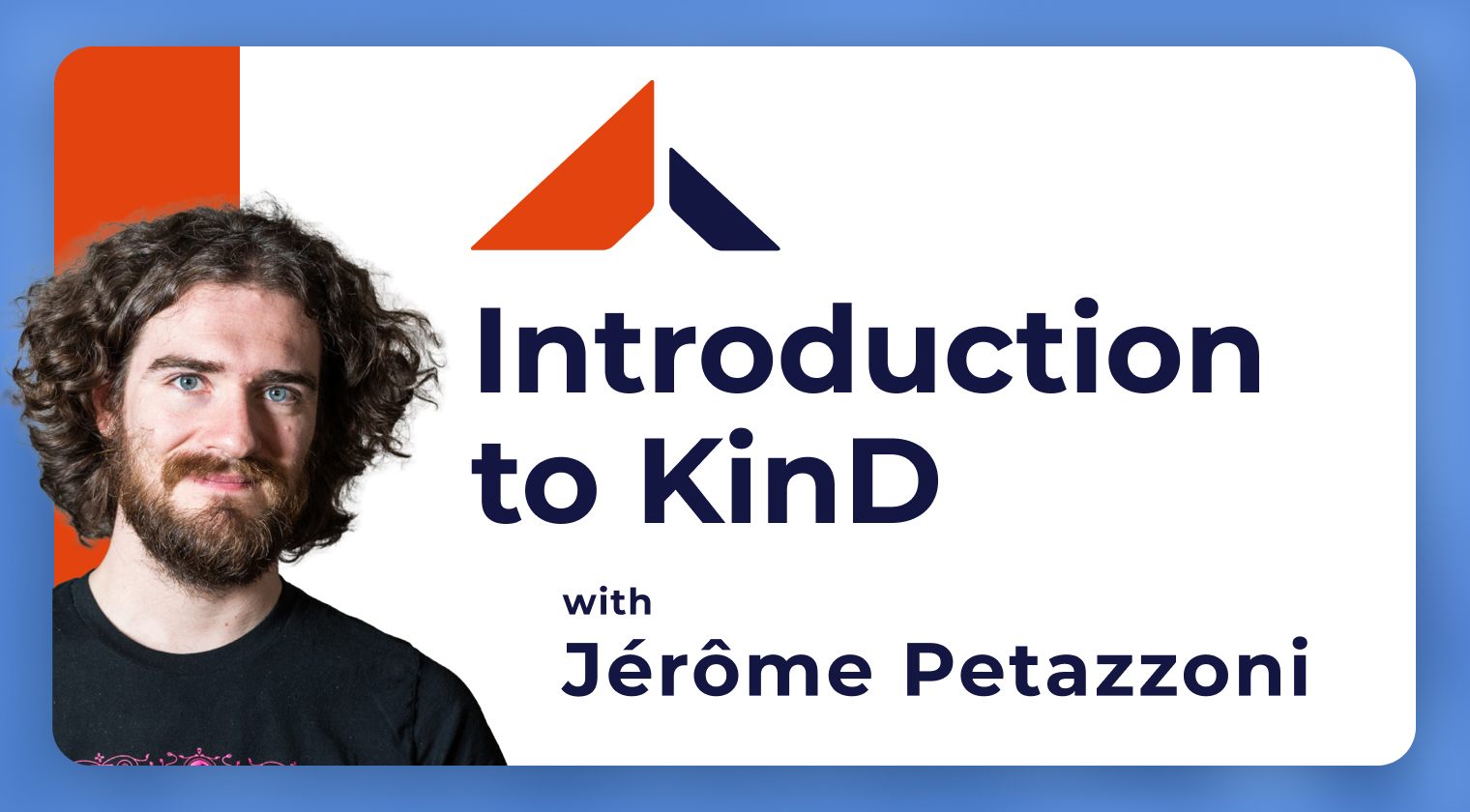
.5+ total hours
Beginner
Introduction to KinD
This course is for IT professionals and engineers who need to understand how to get a local Kubernetes development cluster using KinD. Perfect for anyone looking to stage up disposable clusters.
with: Jérôme Petazzoni
View Course Info

.5+ total hours
Beginner
Introduction to KinD
This course is for IT professionals and engineers who need to understand how to get a local Kubernetes development cluster using KinD. Perfect for anyone looking to stage up disposable clusters.
with: Jérôme Petazzoni
Course Introduction
Learn how to use KinD (Kubernetes-in-Docker) to get a local Kubernetes cluster across Linux, Mac, and Windows environments.
KinD is primarily used for testing Kubernetes but can also be utilized for local development or CI.
Note: All of our bundles are for a one-year subscription.
At the end of the subscription period, your membership does not automatically renew.
Requirements:
- No experience with containers necessary.
Course Outline
Introduction to KinD:
- 1.0 - Using KinD for local Kubernetes development
- 1.2 - 5 options for running Kubernetes locally
- 1.3 - Deploying a KinD cluster with multiple nodes
- 1.4 - Utilizing docker exec/docker stats with KinD
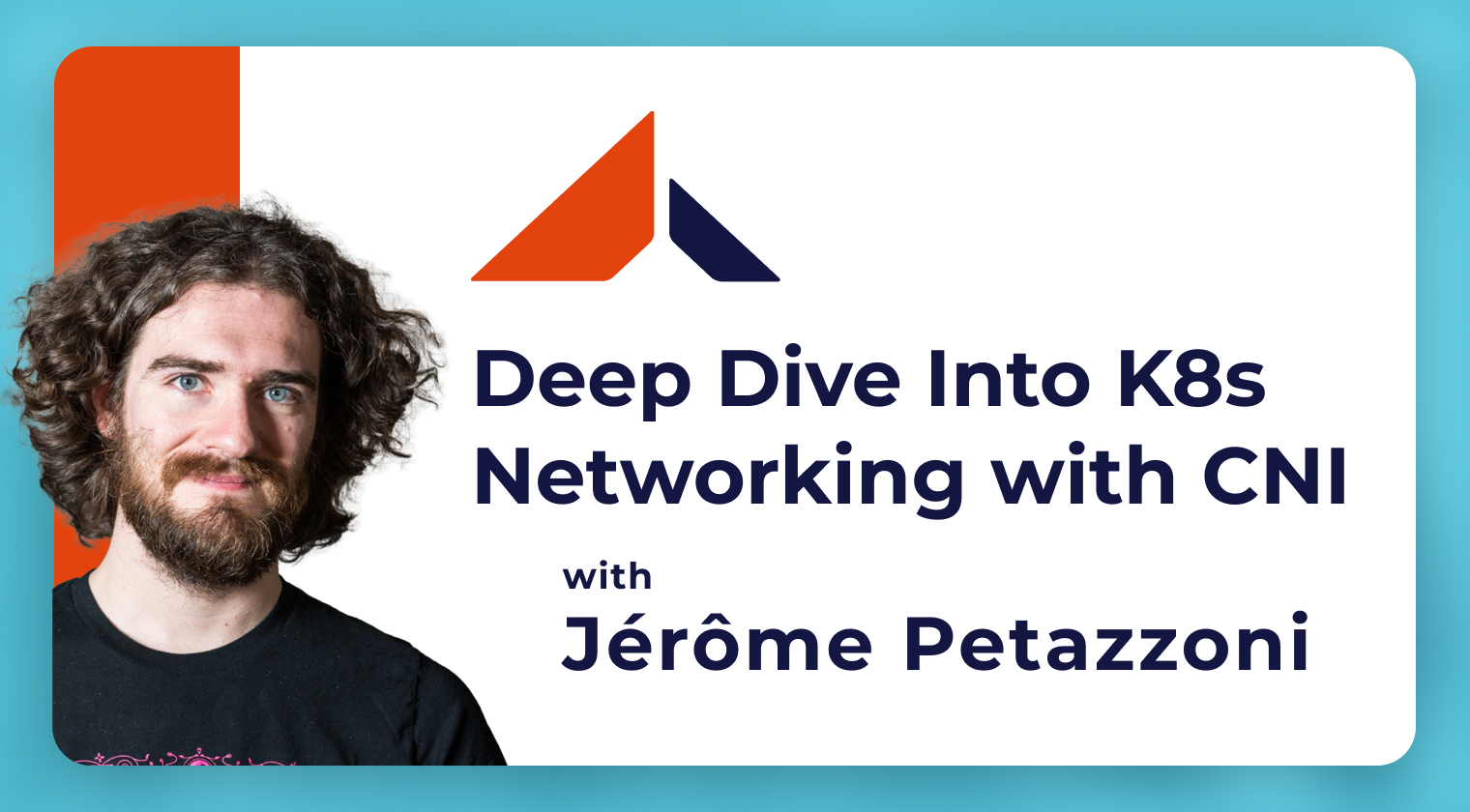
1+ total hours
Beginner
Deep Dive Into Kubernetes Networking with CNI
This course covers concepts around the Container Network Interface (CNI) and how pods communicate on Kubernetes.
with: Jérôme Petazzoni
View Course Info

1+ total hours
Beginner
Deep Dive Into Kubernetes Networking with CNI
This course covers concepts around the Container Network Interface (CNI) and how pods communicate on Kubernetes.
with: Jérôme Petazzoni
Course Introduction
This course is for devs, ops, or even architects, who want to dive deeper into Kubernetes and learn concepts around the Container Network Interface (CNI). We’ll discuss CNI plugins and how pods communicate together on Kubernetes. As an example, we will change the CNI plugin on a live Kubernetes cluster.
This course is part of the Intensive Docker & Kubernetes track. Not sold separately.
Note: All of our bundles are for a one-year subscription.
At the end of the subscription period, your membership does not automatically renew.
Requirements:
- Students should be comfortable using the command line.
- Some experience with Kubernetes recommended.
Course Outline
Kubernets Networking with CNI:
- 1.0 - What is a Kubernetes pod network?
- 1.1 - What is Kubernetes CNI?
- 1.2 - What is the AWS VPC CNI Plugin?
- 1.3 - How To Change a Kubernetes Pod Network
- 1.4 - What is a Kubernetes Overlay?
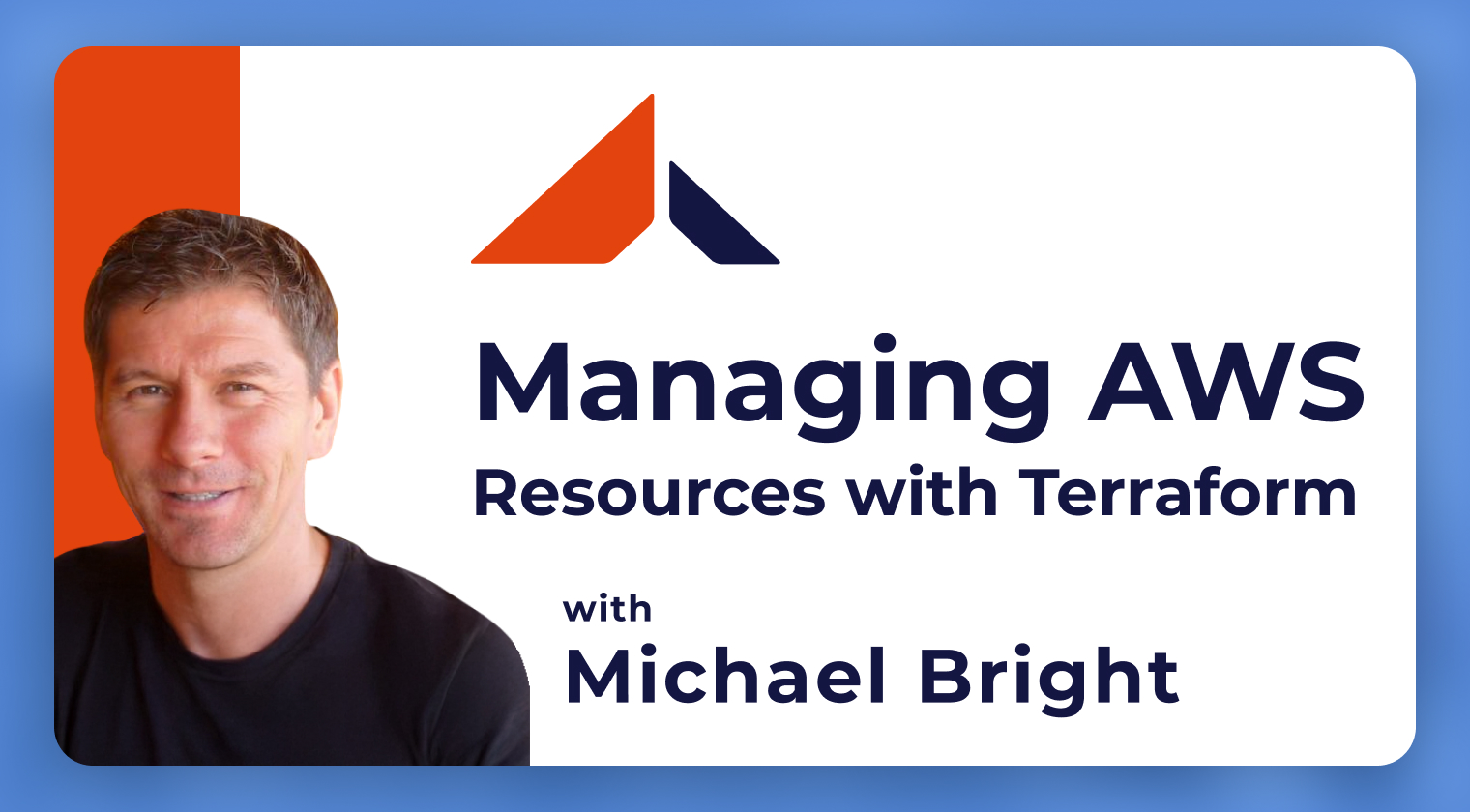
1+ total hours
Beginner
Managing AWS Resources with Terraform
This course explores the basics of using Terraform to manage resources on AWS. Perfect for engineers looking to implement more automation and simplify deployments.
with: Michael Bright
View Course Info

1+ total hours
Beginner
Managing AWS Resources with Terraform
This course explores the basics of using Terraform to manage resources on AWS. Perfect for engineers looking to implement more automation and simplify deployments.
with: Michael Bright
Course Introduction
Get started with the basics of Infrastructure-as-code and see a live demo on how to spin up a web server with Terraform.
This course is part of the Intensive Docker & Kubernetes track. Not sold separately.
Note: All of our bundles are for a one-year subscription.
At the end of the subscription period, your membership does not automatically renew.
Requirements:
- Students should be comfortable using the command line.
- Some experience with Kubernetes recommended.
Course Outline
Managing AWS With Terraform:
- 1.1.1 - What is Infrastructure as Code (IaC)
- 1.1.2 - Benefits of Terraform
- 1.1.3 - Getting Started: Basic Terraform Commands
- 1.1.4 - Example Terraform Configuration File
- 1.1.5 - Intro to Terraform .tf Files
- 1.1.6 - Creating AWS resources with Terraform
- 1.1.7 - Enabling SSH connectivity with Terraform
- 1.1.8 - Turning our server into a web server
- 1.1.9 - Making the server production ready
- 1.2.0 - Creating an S3 bucket with Terraform
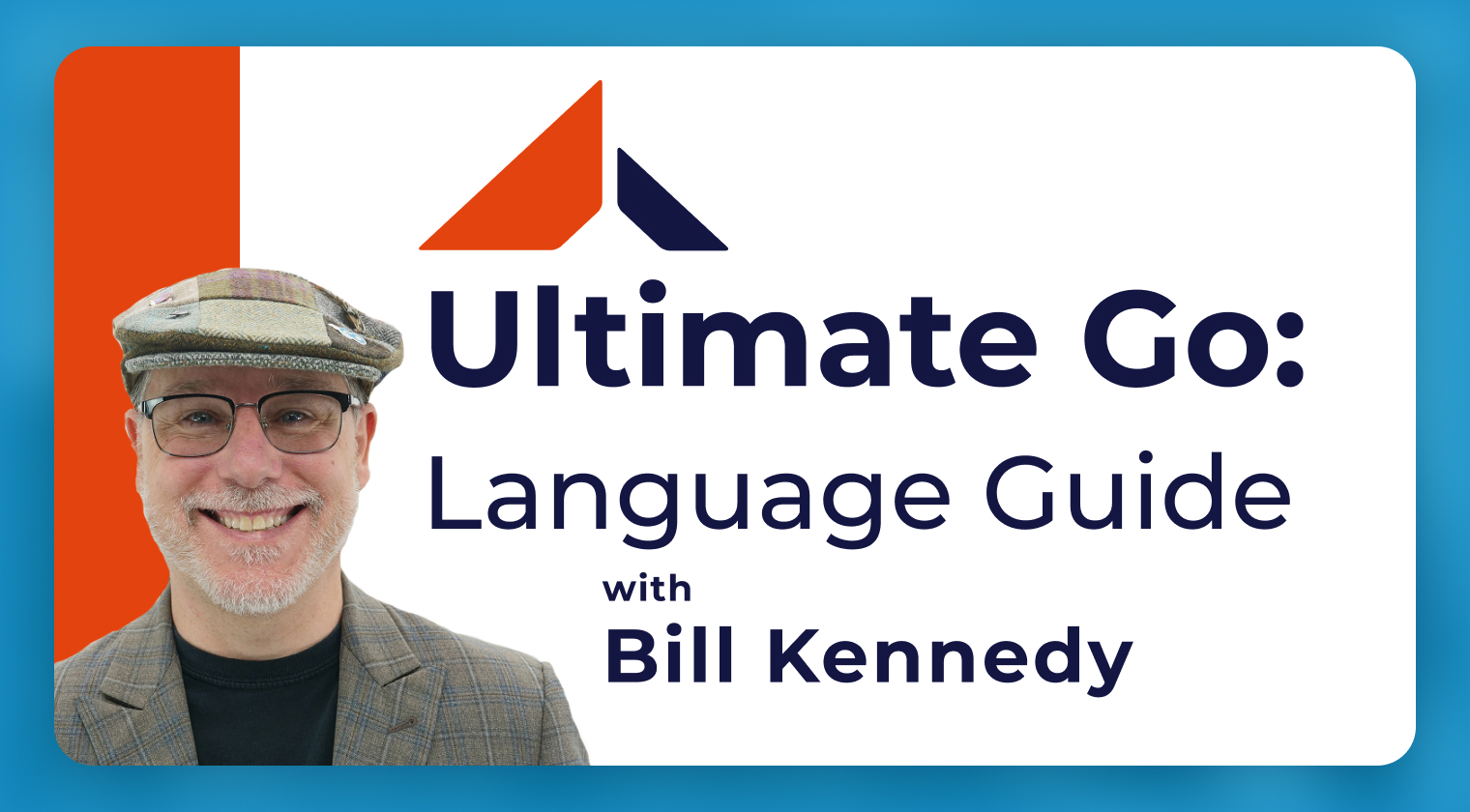
20+ total hours
Intermediate
Ultimate Go: Language Guide
The Ultimate Go: Language Guide is for developers with some experience with Go trying to dig deeper into the language with a focus on performance. They want to learn internals and make better engineering decisions.
with: Bill Kennedy
View Course Info

20+ total hours
Intermediate
Ultimate Go: Language Guide
The Ultimate Go: Language Guide is for developers with some experience with Go trying to dig deeper into the language with a focus on performance. They want to learn internals and make better engineering decisions.
with: Bill Kennedy
Course Introduction
Learn to write better, more idiomatic and performant code in Go with a focus on micro-level engineering decisions. The course begins with a focus on Go internals that are critical to understanding the core tradeoffs on readability, simplicity and performance.
You will learn about data semantics, guidelines, mechanical sympathy, data oriented design, package oriented design, and how to structure your Go projects for the long term.
This course is part of the Ultimate Go Track. Not sold separately.
Note: All of our bundles are for a one-year subscription.
At the end of the subscription period, your membership does not automatically renew.
Requirements:
You need to know how to program and core concepts of working with computers (such as files, HTTP, memory management…)
- Studied CS in school or has a minimum of two years of experience programming full-time professionally.
- Familiar with structural and object-oriented programming styles.
- Has worked with arrays, lists, queues and stacks.
- Understands processes, threads and synchronization at a high level.
Operating Systems:
- Has worked with a command shell.
- Knows how to maneuver around the file system.
- Understands what environment variables are.
You should have the following installed on your computer prior to the workshop:
- Go SDK from golang.org/dl/
- An IDE, either VSCode with Go extension or GoLand
- Git
Course Outline
Strings & Formatted Output:
- 1.1 - Prepare Your Mind - ( 17:38 )
- 1.2 - Productivity vs. Performance - ( 06:24 )
- 1.3 - Correctness vs. Performance - ( 07:14 )
- 1.4 - Code Reviews - ( 19:16 )
- 1.5 - If Performance Matters - ( 03:31 )
Memory & Data Semantics:
- 2.1 - Variables - (05:04)
- 2.2 - Struct Types - (22:55)
- 2.3.1 - Pointers (Pass by Values) - (17:43)
- 2.3.2 - Pointers (Sharing Data) - (07:50)
- 2.3.3 - Pointers ( Escape Analysis) - (19:46)
- 2.4 - Constants - (23:50)
Data Structures:<
- 3.2.1 - Arrays (Mechanical Sympathy) - (15:00)
- 3.2.1 - Arrays (Semantics) - (11:10)
- 3.2.1 - Arrays (Range Mechanics) - (06:39)
- 3.3.1 - Slices (Declare, Length & Reference Types) - (10:00)
- 3.3.2 - Slices (Appending Slices) - (03:00)
- 3.3.3 - Slices (Taking Slices of Slices) - (03:00)
- 3.3.4 - Slices (Slices & References) - (05:35)
- 3.3.5 - Slices (Strings & Slices) - (10:23)
- 3.3.6 - Slices (Range Mechanics) - (04:15)
- 3.4 - Maps - (11:23)
Decoupling:
- 4.1.1 - Methods (Value & Pointer Semantics) - (16:37)
- 4.1.2 - Methods (Function/Method Variables) - (14:43)
- 4.2.1 - Interfaces (Polymorphism) - (18:19)
- 4.2.2 - Interfaces (Method Sets & Address of Value) - (13:42)
- 4.3 - Embedding - (09:50)
- 4.4 - Exporting - (09:52)
Composition:
- 5.1 - Grouping Types - (15:21)
- 5.2.1 - Decoupling Part 1 - (37:02)
- 5.3.2 - Conversion & Assertions - (04:49)
- 5.4 - Interface Pollution - (08:51)
- 5.5 - Mocking - (08:15)
Error Handling:
- 6.1 - Default Error Values - (05:51)
- 6.2 - Error Variables - (10:52)
- 6.3 - Types as Context - (06:59)
- 6.4 - Behavior as Context - (08:14)
- 6.5 - Find the Bug - (04:19)
- 6.6 - Wrapping Errors - (10:16)
Packaging:
- 7.1 - Language Mechanics & Design Guidelines - (11:15)
- 7.2 - Package-Oriented Design - (15:50)
Go Routines:
- 8.1 - OS Scheduler Mechanics - (33:00)
- 8.2 - Go Scheduler Mechanics - (27:11)
- 8.3 - Creating Go Routines - (19:37)
Data Races:
- 9.1 - Managing Data Races (22:15)
Channels:
- 10.1 - Signaling Semantics - (11:08)
- 10.2 - Basic Patterns - (06:21)
- 10.3 - Fan Out - (05:28)
- 10.4 - Wait for Task - (02:31)
- 10.5 - Pooling - (05:14)
- 10.6 - Fan Out Semaphore - (05:22)
- 10.7 - Fan Out Bounded - (06:14)
- 10.8 - Drop Pattern - (05:06)
- 10.9 - Cancellation Pattern - (07:28)
Concurrency Patterns:
- 11.1 - Failure Detection (18:30)
Testing:
- 12.2 - Table Unit Testing - (04:10)
- 12.3 - Mocking Web Server Response - (07:21)
- 12.4 - Testing Internal Endpoints - (09:01)
- 12.5 - Sub Tests - (05:40)
- 12.6 - Code Coverage - (03:33)
Benchmarks:
- 13.1 - Basic Benchmarking - (09:24)
- 13.2 - Validate Benchmarking - (07:01)
- 13.3 - CPU-Bound Benchmarking - (07:03)
- 13.4 - IO-Bound Benchmarking - (06:05)
Profiling & Tracing:
- 14.1 - Profiling Guidelines - (05:42)
- 14.2 - Stack Traces - (08:28)
- 14.3 - Micro Level Optimization - (28:20)
- 14.4 - Macro Level Optimization - (24:47)
- 14.5 - Execution Tracing - (38:56)
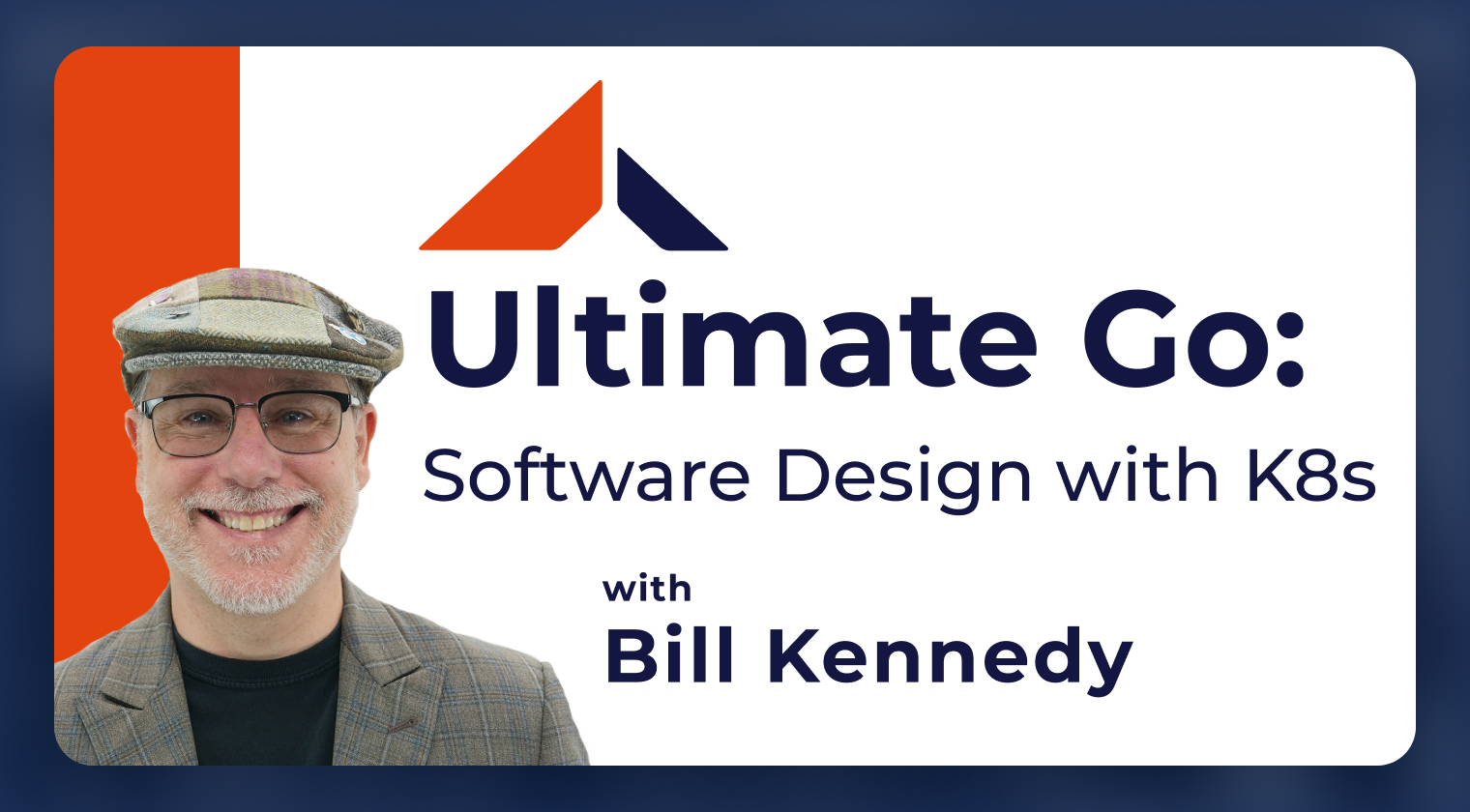
25+ total hours
Intermediate
Ultimate Go: Software Design with Kubernetes
This course teaches you how to build production-level services in Go, leveraging the power of a Domain Driven, Data Oriented Architecture deployed in Kubernetes.
with: Bill Kennedy
View Course Info

25+ total hours
Intermediate
Ultimate Go: Software Design with Kubernetes
This course teaches you how to build production-level services in Go, leveraging the power of a Domain Driven, Data Oriented Architecture deployed in Kubernetes.
with: Bill Kennedy
Course Introduction
From the beginning of the course, you will pair-program with your instructor Bill Kennedy as he walks you through the design philosophies, architectural decisions, and best practices as they apply to engineering a production-ready Go service.
With each new feature that is added to the service, you will learn how to deploy and manage the Kubernetes environment used to run the service. Throughout the class, the code being worked on is pushed to a repository for personal access and review.
This course is part of the Ultimate Go Track. Not sold separately.
Note: All of our bundles are for a one-year subscription.
At the end of the subscription period, your membership does not automatically renew.
Requirements:
You need to know how to program and core concepts of working with computers (such as files, HTTP, memory management…)
- Studied CS in school or has a minimum of two years of experience programming full time professionally.
- Familiar with structural and object-oriented programming styles.
- Has worked with arrays, lists, queues and stacks.
- Understands processes, threads and synchronization at a high level.
Operating Systems:
- Has worked with a command shell.
- Knows how to maneuver around the file system.
- Understands what environment variables are.
You should have the following installed on your computer prior to the workshop:
- Go SDK from golang.org/dl/
- An IDE, either VSCode with Go extension or GoLand
- Git
Course Outline
Introduction:
Introduction to the class and all the engineering that you will learn.
- 1.1: Design Philosophy, Guidelines, What to Expect
- 1.2: Tooling and Images to Install
Deploy First Mentality:
We begin to build the service with a focus on the ability to deploy the service in Kubernetes.
- 2.1: Project Layers, Policies, and Guidelines
- 2.2: Prepare Project
- 2.3: Build Service with Logging
Kubernetes:
We introduce Kubernetes and get a K8s environment up and running. At this point, everything we do runs in the K8s environment.
- 3.1: Clusters, Nodes and Pods
- 3.2: Start the Kubernetes Cluster
- 3.3: Create/Build Dockerfile for the Service
- 3.4: Create/Apply K8s Deployment for the Service
Kubernetes Quotas:
We introduce applying Quotas to the deployment and discuss the problems that can result.
- 4.1: Understanding the Go Scheduler
- 4.2: Understanding CPU Quotas
- 4.3: Adding Quotas and Adjusting GOMAXPROCS
Finish Initial Service Startup/Shutdown:
We finish the initial startup and shutdown of the service.
- 5.1: Configuration
- 5.2: Debugging / Metrics
- 5.3: Shutdown Signaling and Load Shedding
Web Framework:
We build out our own router by extending an existing one. This gives us a framework for injecting business logic into the processing of requests. It also allows for more consistency in the handling of requests.
- 6.1: Basic Structure of an HTTP Router
- 6.2: Liveness and Readiness Handlers
- 6.3: Customize the Router
- 6.4: Middleware Support
- 6.5: Sending Responses
Middleware:
We add middleware functions for business-level logic that needs to be injected into the processing of requests.
- 7.1: Logging
- 7.2: Error Handling
- Understanding What Error Handling Means
- Declaring Custom Error Types
- Consistent Handling and Response
- 7.3: Panic Handling
- 7.4: Metrics
JSON Web Tokens (JWT):
We gain an understanding of how JWT's work and their shortcomings. We also learn about OPA and how we will use it to perform the actual authentication and authorization.
- 8.1: Understanding JWT
- 8.2: Private/Public Key Generation
- 8.3: Token Generation
- 8.4: Token Signature Validation with OPA
Key Store:
We create a simple key store for the project to store and retrieve the private key.
- 9.1: Key Store Package
Authentication / Authorization:
We integrate authentication and authorization support into the project by developing a package to generate and validate tokens. Then we integrate the packages into the application and test that things are working.
- 10.1: Auth Package
- 10.2: Auth Unit Test
- 10.3: Add Middleware
- 10.4: Auth Service
- 10.5: Auth Client
Domain Driven, Data-Oriented Architecture:
We talk about the data-driven data oriented architecture that is implemented in the project. We discuss the design philosophy, guidelines, and semantics of how the three layers of App, Business, and Storage work together.
- 11.1: Architecture Review
- 11.2: Data Flow Trust vs Non-Trust
Database Support:
We add a Postgres database to our K8s environment. Then we write a small database package that provides more effective support for using the SQLx package. Finally, integrate the database package on application startup.
- 12.1: Kubernetes Support for Postgres
- 12.2: Create Database Package
- 12.3: Update Readiness Handler to Perform DB Checks
Database Migrations and Seeding:
We define our schema and provide support for migration schema changes over time. We also provide support for seeding the database. Finally, we added support in Kubernetes to run the migration and seeding on POD startup.
- 13.1: Maintaining Database Schemas and Seeds
- 13.2: Admin Tooling and Init Containers to Automate Migrations
API, App, Business, and Storage Implementation:
We implement the Create domain inside the App, Business, and Storage layers.
- 14.1: User Business Domain Support
- 14.2: User Storage Domain Support
- 14.3: User App Domain Support
- 14.4: User API Domain Support
Testing:
We add docker and unit testing support for writing tests against a real database and write the actual user package tests.
- 15.1: Starting and Stopping Containers
- 15.2: Database Testing Support
- 15.3: Unit and API Testing Support
- 15.4: Write User Business Test
- 15.5: Write User API Tests
Delegate and Transactions:
We talk about how the delegate and transaction systems work.
- 16.1: Delegate System
- 16.2: Transaction System
Observability:
We add tracing to the project by integrating Open Telemetry and Zipkin.
- 17.1: Integrate OTEL into the Project
Review Service Project:
Review service project and get it running.
- 18.1: Check For Dependency Upgrades, Rebuild, Run
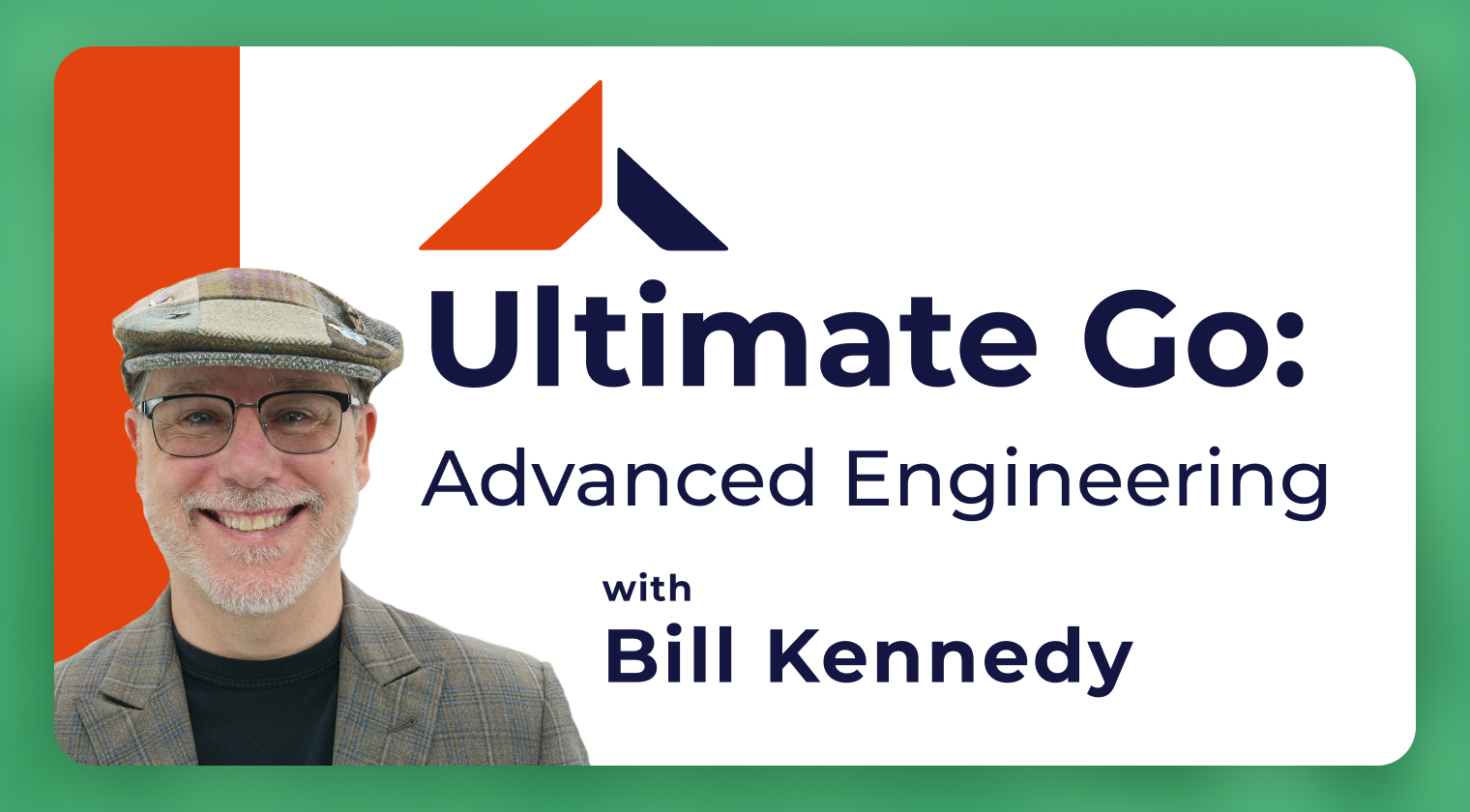
20+ total hours
Intermediate
Ultimate Go: Advanced Engineering
Learn advanced Go concepts by building a reference implementation of a blockchain in Go! The goal of this class is to share how to code complex engineering tasks required to build blockchain technology.
with: Bill Kennedy
View Course Info

20+ total hours
Intermediate
Ultimate Go: Advanced Engineering
Learn advanced Go concepts by building a reference implementation of a blockchain in Go! The goal of this class is to share how to code complex engineering tasks required to build blockchain technology.
with: Bill Kennedy
Course Introduction
From the beginning, you will pair program with the instructor, walking through the design philosophies and guidelines used to engineer the code. Throughout the class, you will learn more about Go and the advanced engineering features of the language.
This course is part of the Ultimate Go Track. Not sold separately.
Note: All of our bundles are for a one-year subscription.
At the end of the subscription period, your membership does not automatically renew.
Requirements:
You need to know how to program and core concepts of working with computers (such as files, HTTP, memory management…)
- An intermediate understanding of the Go programming language is recommended.
- Students will derive the most value if they have taken our Ultimate Go: Language Guide and Ultimate Go: Software Design with Kubernetes classes.
You should have the following installed on your computer prior to the workshop:
Course Outline
Introduction:
- 1.1: Design Philosophy, Guidelines, What to Expect
- 1.2: Tooling to Install
- 1.3: Initial Code for the Project
Blockchain Fundamentals:
- 2.1: Blockchain Fundamentals
- 2.2: Genesis
- 2.3: Transactions and Blocks
- 2.4: Digital Signatures
- 2.5: Account Management
- 2.6: Memory Pooling
- 2.7: Mining and Consensus
- 2.8: Fraud Detection
Genesis:
- 3.1: What is Genesis
- 3.2: Configuration Options
- 3.3: Reading From Disk
Digital Signatures:
- 4.1: What is a Digital Signature
- 4.2: Hashing
- 4.3: Stamping
- 4.4: Signing
- 4.5: Addressing
- 4.6: Verification
Database:
- 5.1: What is Inside the Blockchain Database
- 5.2: Transaction Types
- 5.3: Accounting
- 5.4: Block Types
Cryptographic Audit Trails:
- 6.1: What is a Cryptographic Audit Trail
- 6.2: Chaining
- 6.3: Merkle Tree Proofs
- 6.4: Account Database Proof
Memory Pools:
- 7.1: What is a Mempool
- 7.2: Storing Transactions
- 7.3: Transaction Selection
Accepting Signed Transations:
- 8.1: Handler function
- 8.2: Transaction Signature Verification
- 8.3: Mempool Inclusion
Mining:
- 9.1: What is Consensus and Mining
- 9.2: Proof Of Work Algorithm
- 9.3: Implement Mining Workflow
Storage:
- 10.1: Storage Options
- 10.2: Writing Blocks
- 10.3: Reading and Searching Blocks
Peer to Peer Networks:
- 11.1: What is the P2P Network
- 11.2: Peer Discovery
- 11.3: Sharing Transactions
- 11.4: Sharing Blocks
Wallets:
- 12.1: Chrome Plugin Basics
- 12.2: Javascript Support
- 12.3: Send Signed Transaction
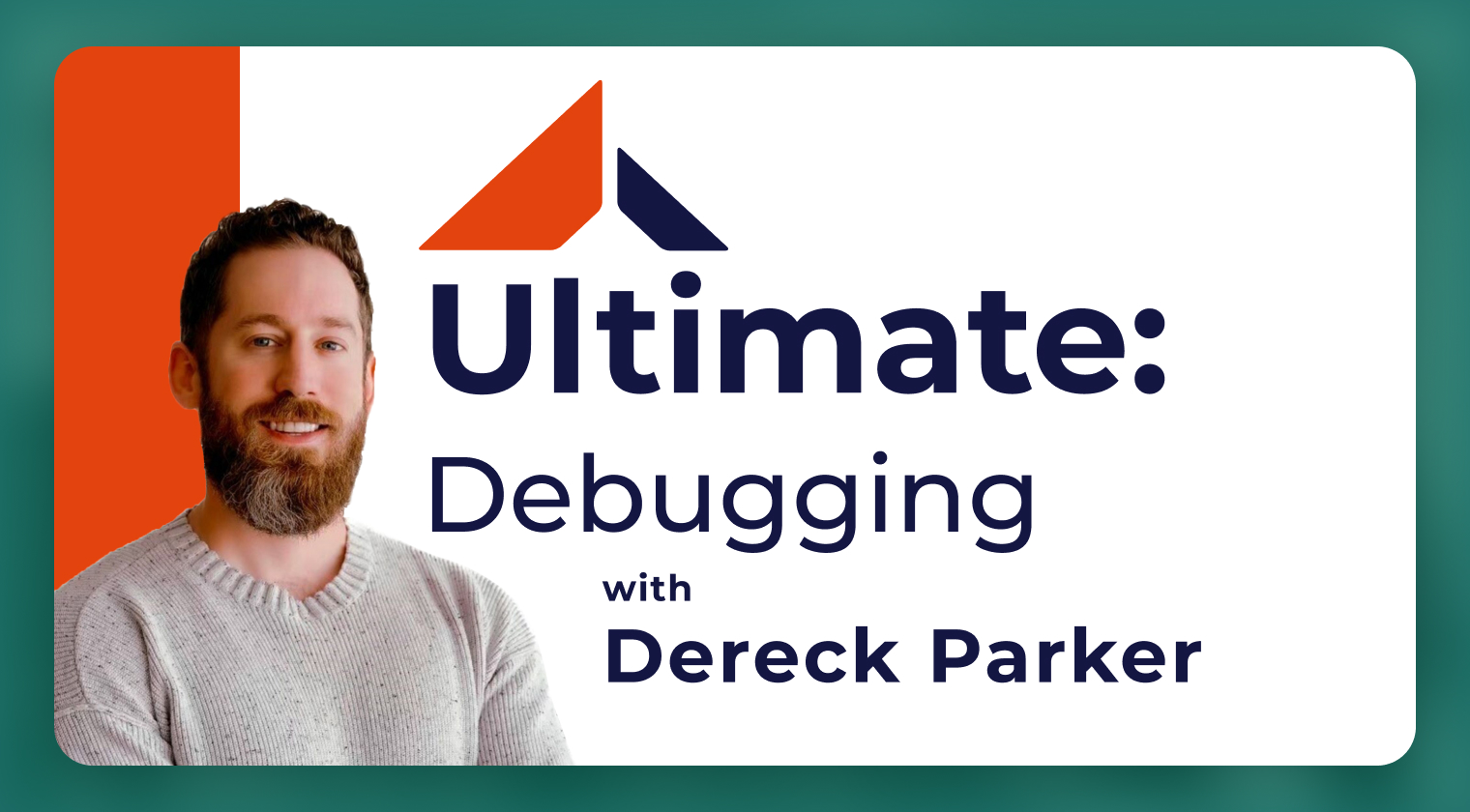
16+ total hours
Beginner
Intermediate
Ultimate Debugging
Learn the latest tips, tricks, and best practices around debugging in Golang.
with: Derek Parker
View Course Info

16+ total hours
Beginner
Intermediate
Ultimate Debugging
Learn the latest tips, tricks, and best practices around debugging in Golang.
with: Derek Parker
Course Introduction
This course is designed for developers who want to become proficient debugging Go software using the Delve debugger. Whether you’ve never used a debugger in your life or are a Delve expert, everybody will walk away with new information that can be used in their day to day development workflow.
The course will initially focus on Delve, which is the de facto Go debugger. We will start with the basics and move into more advanced use cases over the 5 days. On the last day of class, we will dig into new tools and cover profiling / perf tools, how to use them effectively, and how to interpret the data for root cause analysis.
At the end of the subscription period, your membership does not automatically renew.
Requirements:
A basic understanding of the Go programming language. Students do not have to be expert Go users, but they will get the most from the workshop if they have completed the majority of the [Go Tour] (https://tour.golang.org/).
Course Outline
Day 1:
- Introduction, getting started, navigating your program, inspecting program state, changing program state.
Day 2:
- Advanced program navigation, tracing your program, examining core dumps (post-mortem debugging). Part 1
Day 3:
- Advanced program navigation, tracing your program, examining core dumps (post-mortem debugging). Part 2
Day 4:
- Scripting Delve, remote debugging, using the JSON-RPC API, record and replay debugging.
Day 5:
- Debugging containerized applications, debugging an application on Kubernetes. Part 1
Day 6:
- Debugging containerized applications, debugging an application on Kubernetes. Part2
Day 7:
- Using proof profiling tools, using perf on Go binaries, and deep dive into Delve and Go internals. Part 1
Day 8:
- Using proof profiling tools, using perf on Go binaries, and deep dive into Delve and Go internals. Part 2
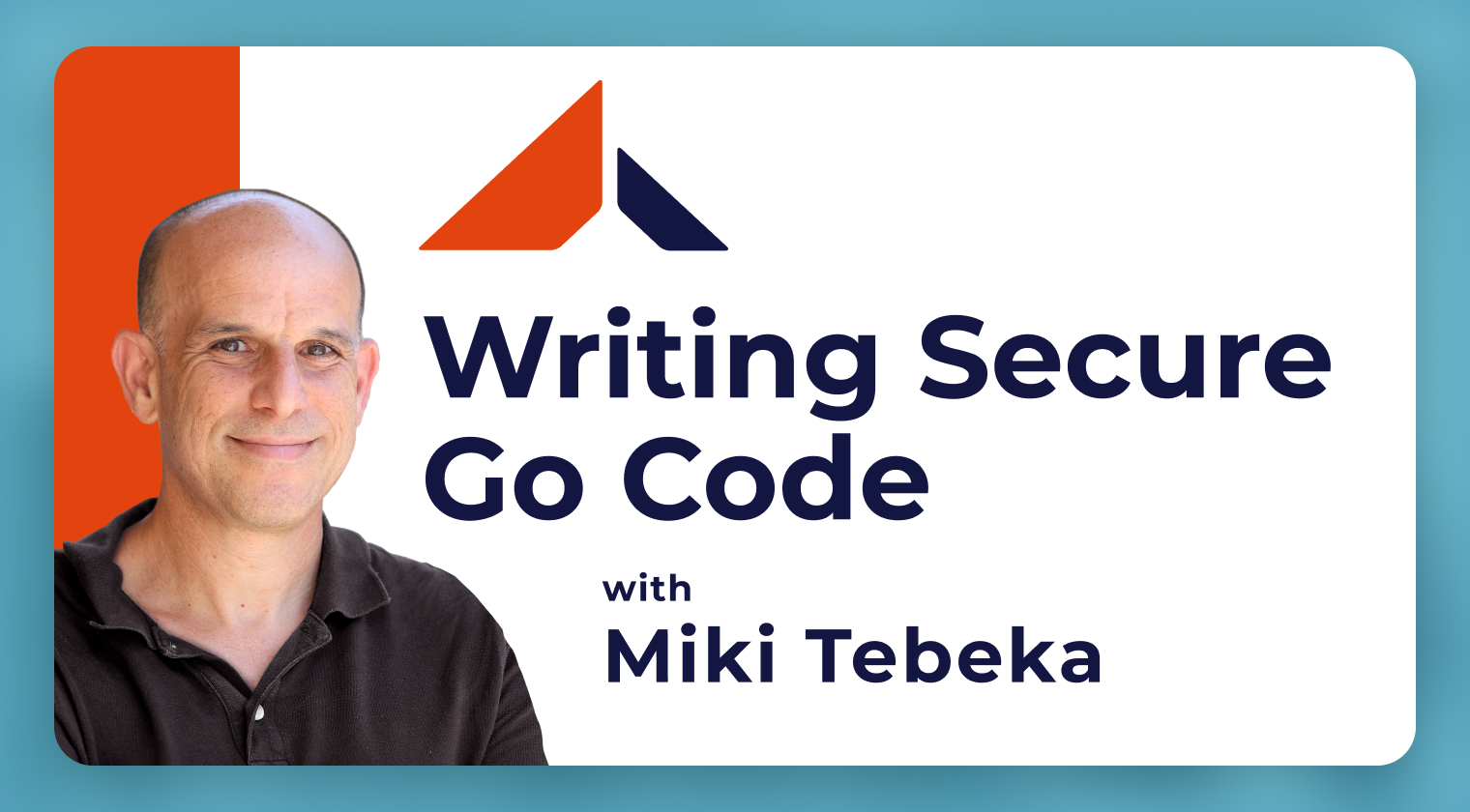
1+ total hours
Intermediate
Writing Secure Go Code
This course covers best practices for securing your Go applications. You’ll work with a simple Go app & identify security vulnerabilities from the OWASP Top Ten.
with: Miki Tebeka
View Course Info

1+ total hours
Intermediate
Writing Secure Go Code
This course covers best practices for securing your Go applications. You’ll work with a simple Go app & identify security vulnerabilities from the OWASP Top Ten.
with: Miki Tebeka
Course Introduction
Follow along with the instructor as he overviews common vulnerabilities in a live Go application. You’ll learn about tools and strategies to help you identify security vulnerabilities and how to think about security when it comes to your Golang application.
This course is part of the Ultimate Go Track. Not sold separately.
Note: All of our bundles are for a one-year subscription.
At the end of the subscription period, your membership does not automatically renew.
Requirements:
You need to know how to program and core concepts of working with computers (such as files, HTTP, memory management…)
- Studied CS in school or has a minimum of two years of experience programming full time professionally.
- Familiar with structural and object-oriented programming styles.
- Has worked with arrays, lists, queues and stacks.
- Understands processes, threads and synchronization at a high level.
You should have the following installed on your computer prior to the workshop:
- Go SDK from golang.org/dl/
- An IDE, either VSCode with Go extension or GoLand
- Git
Course Outline
What's Covered:
- The Security Mindset - (03:00)
- Go Security Policy - (04:43)
- OWASP Top Ten - (06:46)
- Input - (09:10)
- Output - (17:46)
- Authentication - (25:56)
- Infrastructure - (28:42)

PDF & Paperback
Ultimate Go: Notebook
The ultimate companion to the Ultimate Go: Language Guide course. Help turn your programming to engineering with this notebook.
with: Bill Kennedy
View Course Info

PDF & Paperback
Ultimate Go: Notebook
The ultimate companion to the Ultimate Go: Language Guide course. Help turn your programming to engineering with this notebook.
with: Bill Kennedy
About This Book
This notebook has been written and designed to provide a reference to everything covered in our Ultimate Go class. If you have taken the class before, this notebook will be invaluable for reminders on the content. If you have never taken the class, there is still tremendous value in this book. It covers more advanced topics not found in other books today.
- Guidelines, design philosophy, white-boarding, and notes shared from the Ultimate Go training.
- Learn advanced concepts in Go from types to profiling.
- Get started with generic functions and types.
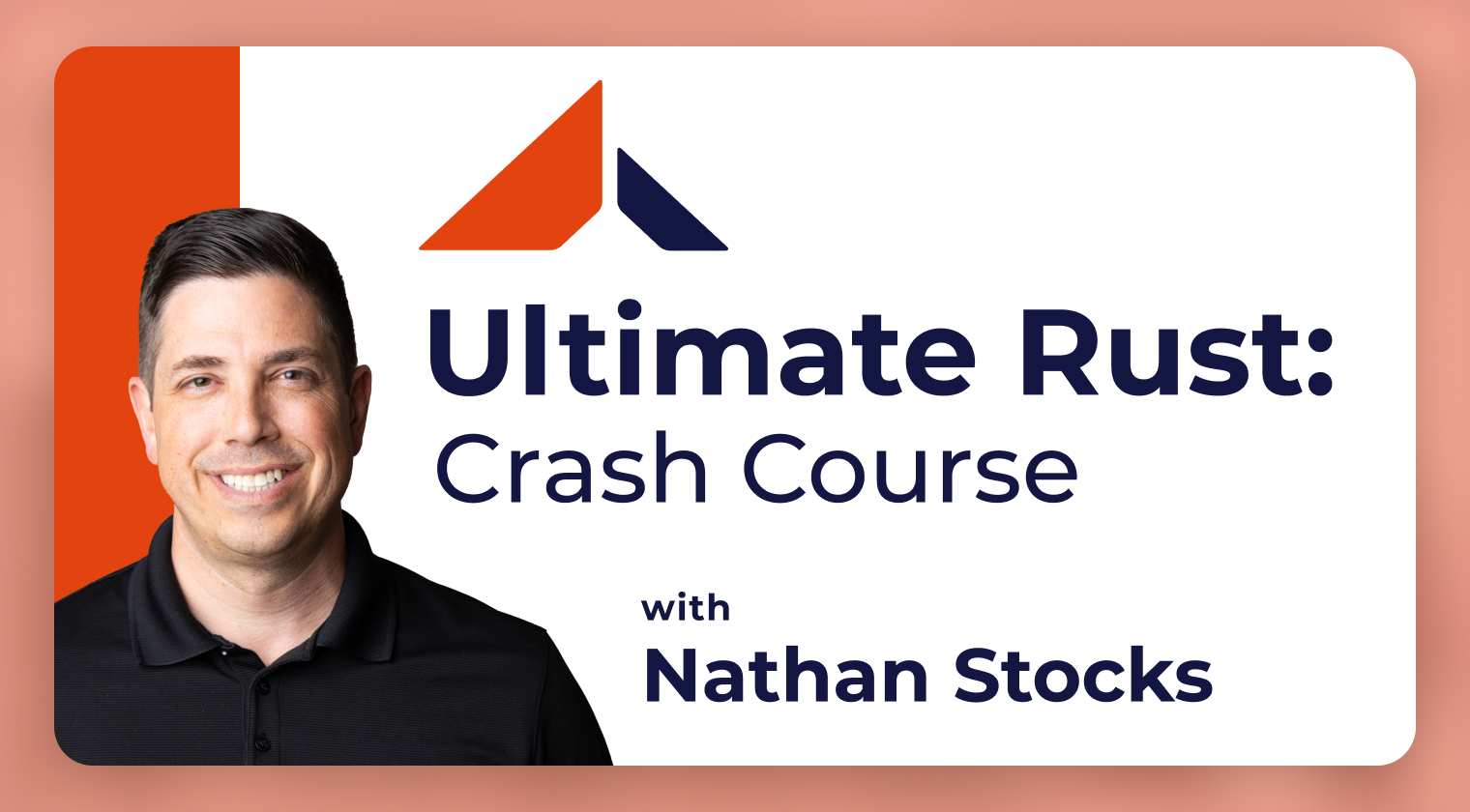
5+ total hours
Beginner
Ultimate Rust: Crash Course
This course will provide you with the fundamentals you need to boost you up Rust's steep learning curve. A fast-paced, entertaining, and curiously informative hands-on crash course in the Rust programming language. Learn how to write high-performance code without the worry of crashes or security vulnerabilities.
with: Nathan Stocks
View Course Info

5+ total hours
Beginner
Ultimate Rust: Crash Course
This course will provide you with the fundamentals you need to boost you up Rust's steep learning curve. A fast-paced, entertaining, and curiously informative hands-on crash course in the Rust programming language. Learn how to write high-performance code without the worry of crashes or security vulnerabilities.
with: Nathan Stocks
Course Introduction
Note: All of our bundles are for a one-year subscription.
At the end of the subscription period, your membership does not automatically renew.
What you’ll learn:
- Rust language basics, tooling, and ecosystem
- Fundamentals such as variables, scope, functions, modules, scalar & compound types, control flow, strings, structs, traits, enums, and more.
- Fun tips & tricks for using Rust and systems programming in general
- Concepts essential to understanding Rust such as ownership, references & borrowing, the memory model, and why Rust focuses on safety, concurrency, and speed.
Requirements:
- A basic understanding of general programming concepts
- Familiarity with other programming languages such as Python, C, etc. is helpful, but not required.
- Rust installed and ready to use - you’ll learn more by doing the exercises!
Who this course is for:
- Aspiring systems programmers, software developers, engineers, wizards, warriors, and hobbits
- Any developer who needs to run code fast, efficiently, securely, under tight restraints, or with a minimum of bugs
- A desire to begin using Rust
Course Outline
Module 1: Introduction
- Lesson 1.1 - Introduction
- Lesson 1.2 - Exercises Overview
- Lesson 1.3 - Installation
- Lesson 1.4 - Editor/IDE
Module 2: Fundamentals
- Lesson 2.1 - Cargo
- Lesson 2.2 - Variables
- Lesson 2.3 - Scope
- Lesson 2.4 - Memory Safety
- Lesson 2.5 - Exercise A - Variables
- Lesson 2.6 - Functions
- Lesson 2.7 - Exercise B - Functions
- Lesson 2.8 - Module System
- Lesson 2.9 - Exercise C - Module System
Module 3: Primitive Types & Control Flow
- Lesson 3.1 - Scalar Types
- Lesson 3.2 - Compound Types
- Lesson 3.3 - Exercise D - Simple Types
- Lesson 3.4 - Control Flow
- Lesson 3.5 - Exercise E - Control Flow
- Lesson 3.6 - Strings
- Lesson 3.7 - String Literals
- Lesson 3.8 - Exercise F - Strings
Module 4: The Heart of Rust
- Lesson 4.1 - Ownership
- Lesson 4.2 - References & Borrowing
- Lesson 4.3 - Exercise G - Ownership & References
Module 5: The Meat of Rust
- Lesson 5.1 - Structs
- Lesson 5.2 - Exercise H - Structs
- Lesson 5.3 - Traits
- Lesson 5.4 - Exercise I - Traits
- Lesson 5.5 - Collections
- Lesson 5.6 - Exercise J - Collections
- Lesson 5.7 - Enums
- Lesson 5.8 - Exercise K - Enums
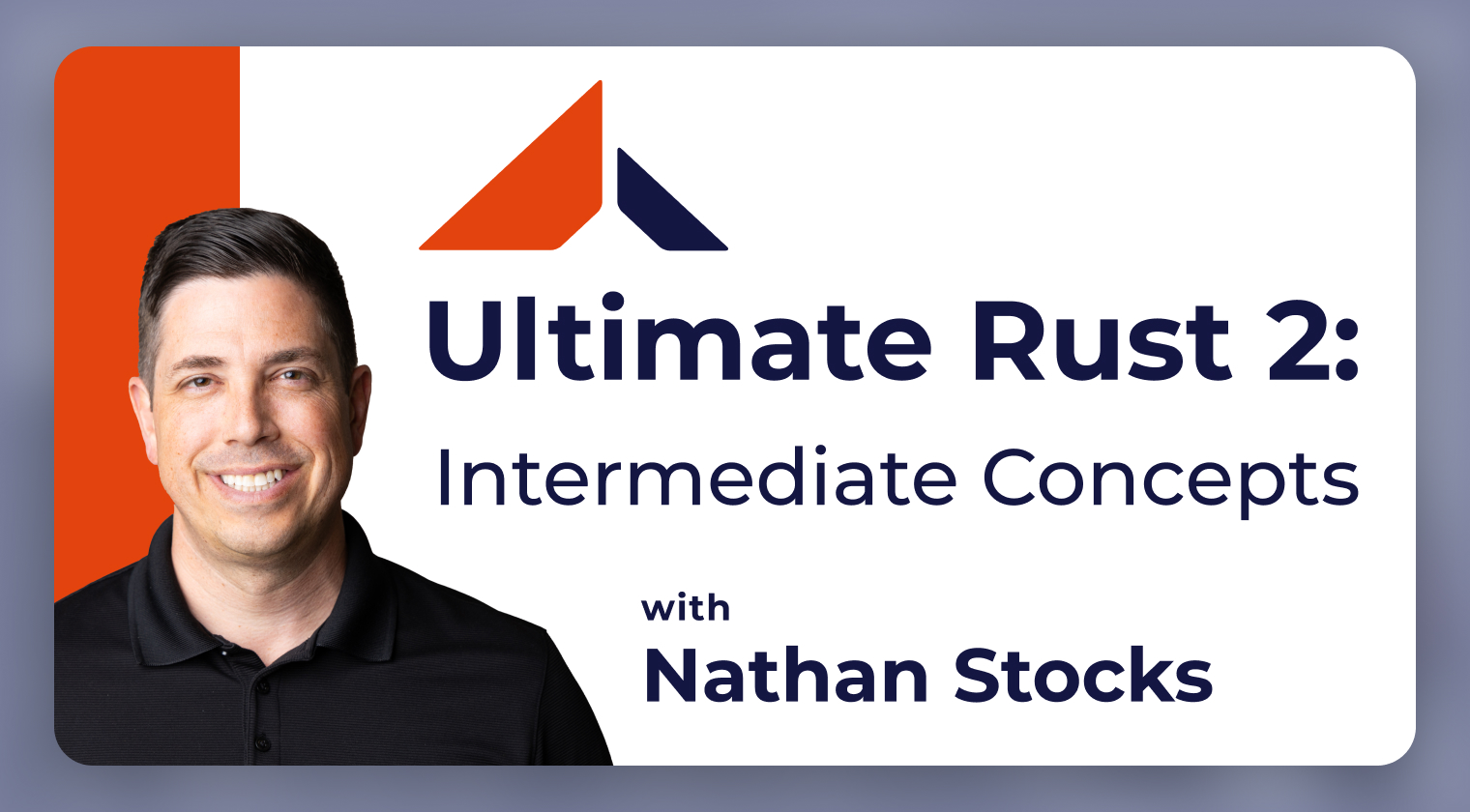
4+ total hours
Intermediate
Ultimate Rust 2: Intermediate Concepts
This is the second course in the Ultimate Rust series following the Ultimate Rust Crash Course. It will provide an even deeper dive into the Rust programming language with the same fast-paced, entertaining, curiously-informative, hands-on styled curriculum. If you like that course, you'll love this one!
with: Nathan Stocks
View Course Info

4+ total hours
Intermediate
Ultimate Rust 2: Intermediate Concepts
This is the second course in the Ultimate Rust series following the Ultimate Rust Crash Course. It will provide an even deeper dive into the Rust programming language with the same fast-paced, entertaining, curiously-informative, hands-on styled curriculum. If you like that course, you'll love this one!
with: Nathan Stocks
Course Introduction
This is a hands-on course! Not only are there targeted exercises for each topic discussed, there are also a series of project scenarios that walk you through using what you’ve learned to put together playable game prototypes that work on macOS, Linux, and Windows.
These projects will make use of Rusty Engine, a game engine developed specifically for this course to keep game engine concepts to a minimum so you can focus on using exactly what you learned in this course.
Note: All of our bundles are for a one-year subscription.
At the end of the subscription period, your membership does not automatically renew.
What you’ll learn:
- How to write idiomatic, well-tested, documented Rust code
- Threads, channels, closures, iterators, code documentation, std library traits, error handling, testing, benchmarks, logging, attributes, turbofish and more!
- Rust concepts beyond the fundamentals taught in the “Ultimate Rust Crash Course”
- How to use Rust to make video game prototypes
Requirements:
- A beginner’s knowledge of Rust (taking the “Ultimate Rust Crash Course” is recommended)
- Intermediate+ experience with general programming concepts and languages.
- Rust installed and ready to use - this is a hands-on course!
Who this course is for:
- Experienced systems programmers, software developers, engineers, wizards, warriors, and hobbits
- Any developer who needs to run code fast, efficiently, securely, under tight restraints, or with a minimum of bugs
- Anyone planning to use Rust frequently
Course Outline
Module 1: Introduction
- Lesson 1.1 - Introduction
- Lesson 1.2 - Exercises Overview
Module 2: Lectures & Exercises
- Lesson 2.1 - Idiomatic Code
- Lesson 2.2 - Exercise - Idiomatic Code
- Lesson 2.3 - Documentation
- Lesson 2.4 - Exercise - Documentation
- Lesson 2.5 - Publishing
- Lesson 2.6 - Exercise - Publishing
- Lesson 2.7 - Iterators
- Lesson 2.8 - Closures
- Lesson 2.9 - Exercise - Closures & Iterators
- Lesson 2.10 - Common Traits
- Lesson 2.11 - Exercise - Traits
- Lesson 2.12 - Creating Errors
- Lesson 2.13 - Handling Errors
- Lesson 2.14 - Exercise - Errors
- Lesson 2.15 - Unit Tests
- Lesson 2.16 - Integration Tests
- Lesson 2.17 - Benchmarks
- Lesson 2.18 - Exercise - Testing
- Lesson 2.19 - Logging
- Lesson 2.20 - Exercise - Logging
- Lesson 2.21 - Multithreading
- Lesson 2.22 - Channels
- Lesson 2.23 - Exercise - Threads & Channels
Module 3: Project - Learn Rusty Engine
- Lesson 3.1 - Project Overview
- Lesson 3.2 - Configuration
- Lesson 3.3 - Engine Initialization
- Lesson 3.4 - Game State
- Lesson 3.5 - Game Logic Function
- Lesson 3.6 - Sprites
- Lesson 3.7 - Colliders
- Lesson 3.8 - Keyboard Input
- Lesson 3.9 - Mouse Input
- Lesson 3.10 - Text
- Lesson 3.11 - Audio
- Lesson 3.12 - Timer
- Lesson 3.13 - Engine & Game Structs
Module 4: Game - Road Race
- Lesson 4.1 - Common Setup
- Lesson 4.2 - Road Race
Module 5: Game - Car Shoot
- Lesson 5.1 - Car Shoot, part 1
- Lesson 5.2 - Car Shoot, part 2
- Lesson 5.3 - Car Shoot, part 3
- Lesson 5.4 - Car Shoot, part 4
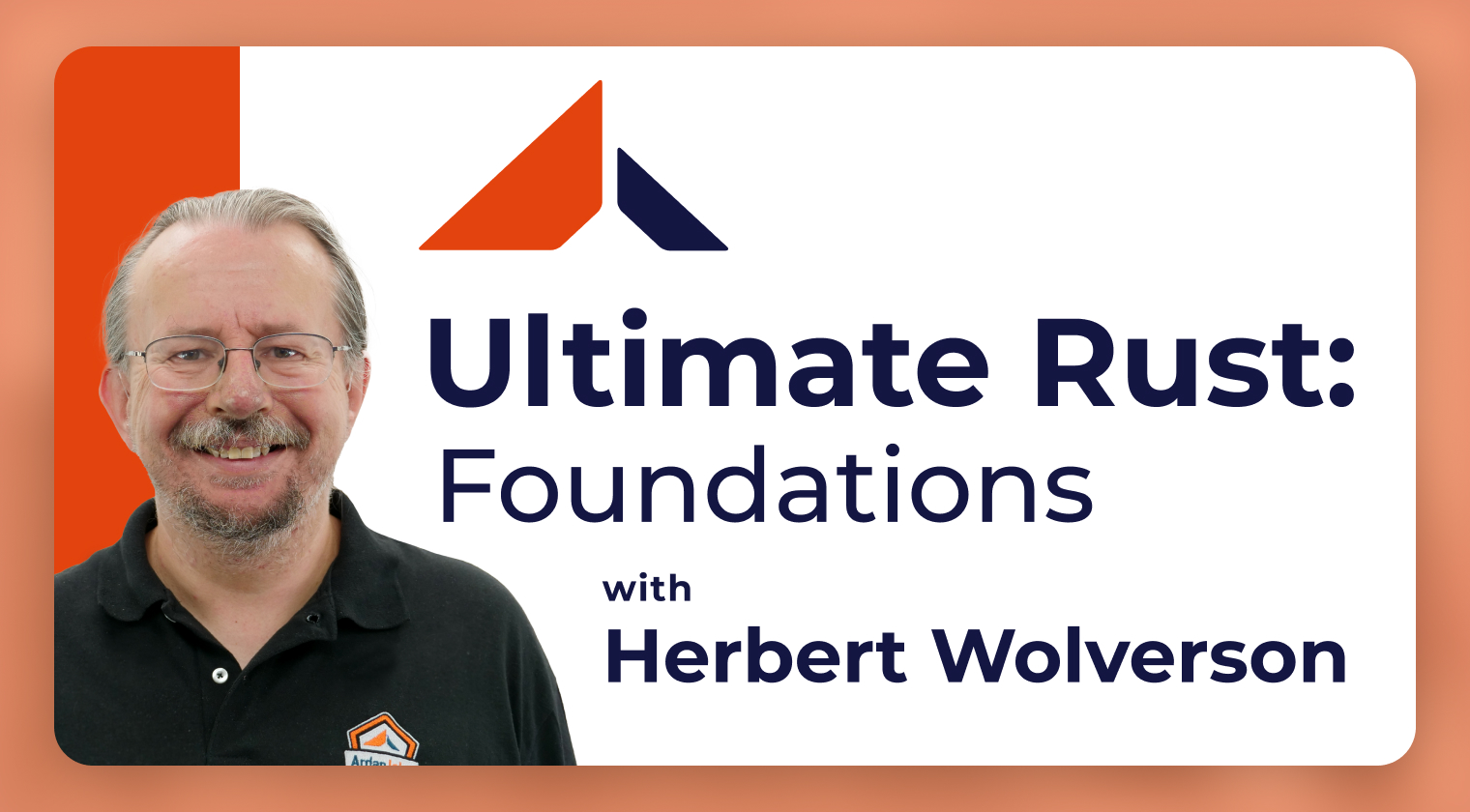
20+ total hours
Beginner
Intermediate
Ultimate Rust Foundations
This comprehensive course is designed to take you from zero to hero in Rust, equipping you with the skills to excel in basic development and web service creation. Through practical, hands-on training, you'll establish a robust understanding of Rust fundamentals
with: Herbert Wolverson
View Course Info

20+ total hours
Beginner
Intermediate
Ultimate Rust Foundations
This comprehensive course is designed to take you from zero to hero in Rust, equipping you with the skills to excel in basic development and web service creation. Through practical, hands-on training, you'll establish a robust understanding of Rust fundamentals
with: Herbert Wolverson
Course Introduction
Ultimate Rust: This course covers many best practices to help you with integrate Rust into your workflow, and let Rust’s tooling work for you. It includes formatting, linting, dependencies, vulnerabilities, code style and general development advice..
This course is part of the Ultimate Rust track. Not sold separately.
Note: All of our bundles are for a one-year subscription.
At the end of the subscription period, your membership does not automatically renew.
Course Outline
Getting Started with Rust:
- 1.0 - Introduction
- 1.1 - Setup & Update Rust
- 1.2 - Setup Dev Environment
- 1.3 - IDE Configuration
- 1.4 - Rust Fundamentals
- 1.5 - Console Text Input
- 1.6 - Create a Library
- 1.7- World’s Simplest Login System
- 1.8 - Enumerations
- 1.9 - Structures
- 1.10 - Vectors
- 1.11 - HashMaps
- 1.12 - Serialization/Deserialization
- 1.13 - Hashing Passwords
- 1.14 - Start a CLI App
Fearless System Thread Concurrency:
- 2.0 - Introduction
- 2.1 - System Threads: Overview
- 2.2 - Create Your First Thread
- 2.3 - Spawning Threads with Parameters and Closures
- 2.4 - Returning Data from Threads
- 2.5 - Dividing Workloads
- 2.6 - The ThreadBuilder Pattern
- 2.7 - Scoped Threads for Easy Local Data Sharing
- 2.8 - Sharing Data with Atomics
- 2.9 - Sharing Data with Mutexes
- 2.10 - Read/Write Locks
- 2.11 - Deadlocks, Panics and Poisoning
- 2.12 - Sharing Data with Lock-Free Structures
- 2.13 - Parking Threads
- 2.14 - Sending Data Between Threads with Channels
- 2.15 - Sending Functions to Worker Threads
- 2.16 - Let’s build a work queue with a thread pool
- 2.17 - Thread CPU/Core Affinity
- 2.18 - Thread Priority
- 2.19 - Making it Easy with Rayon
- 2.20 - Scopes and Pooled Threads with Rayon
Async/Await Concurrency:
- 3.0 - ntroduction / Async Overview
- 3.1 - Hello Async/Await
- 3.2 - Getting Started with Tokio
- 3.3 - Working with Tokio Futures: Awaiting, Yielding and Spawning
- 3.4 - Blocking Tasks
- 3.5 - Unit Testing Tokio
- 3.6 - Handling Errors
- 3.7 - File I/O
- 3.8 - Basic Network I/O
- 3.9 - Async Channels (Tokio)
- 3.10 - Shared State (Tokio)
- 3.11 - Selecting Futures
- 3.12 - Pinning
- 3.13 - Tokio Tracing
- 3.14 - Working with Databases
- 3.15 - Axum - A Web Framework built on Tokio
- 3.16 - Let’s Build a Thumbnail Server
Memory & Resource Management:
- 4.0 - Why Haven’t We Manually Managed Any Memory Yet?
- 4.1 - The unsafe Keyword
- 4.2 - Low-Level Memory Management
- 4.3 - The Drop Trait & RAII (Resource Acquisition is Initialization)
- 4.4 - Reference Counting
- 4.5 - Lifetimes
- 4.6 - Traits
- 4.7 - Generics
- 4.8 - Iterators
- 4.9 - Cycles and the Difficulty of Linked Lists
- 4.10 - Memory Fragmentation, Allocators and Arenas
- 4.11 - Packing, Reordering & Mangling
- 4.12 - From Bytes to Types
- 4.13 - Safely Interacting with Other Languages & Surprise: Memory Leaks are Safe!
Build a Network Service:
- 5.0 - Introduction & Planning Our Project
- 5.1 - Shared Data Structures
- 5.2 - Collection Daemon Mk 1
- 5.3 - Collection Server Mk 1
- 5.4 - Error Handling in the Collector
- 5.5 - Setting the Collector ID
- 5.6 - Web Service Mk 1
- 5.7 - Web Server
- 5.8 - Let’s Use Less Bandwidth
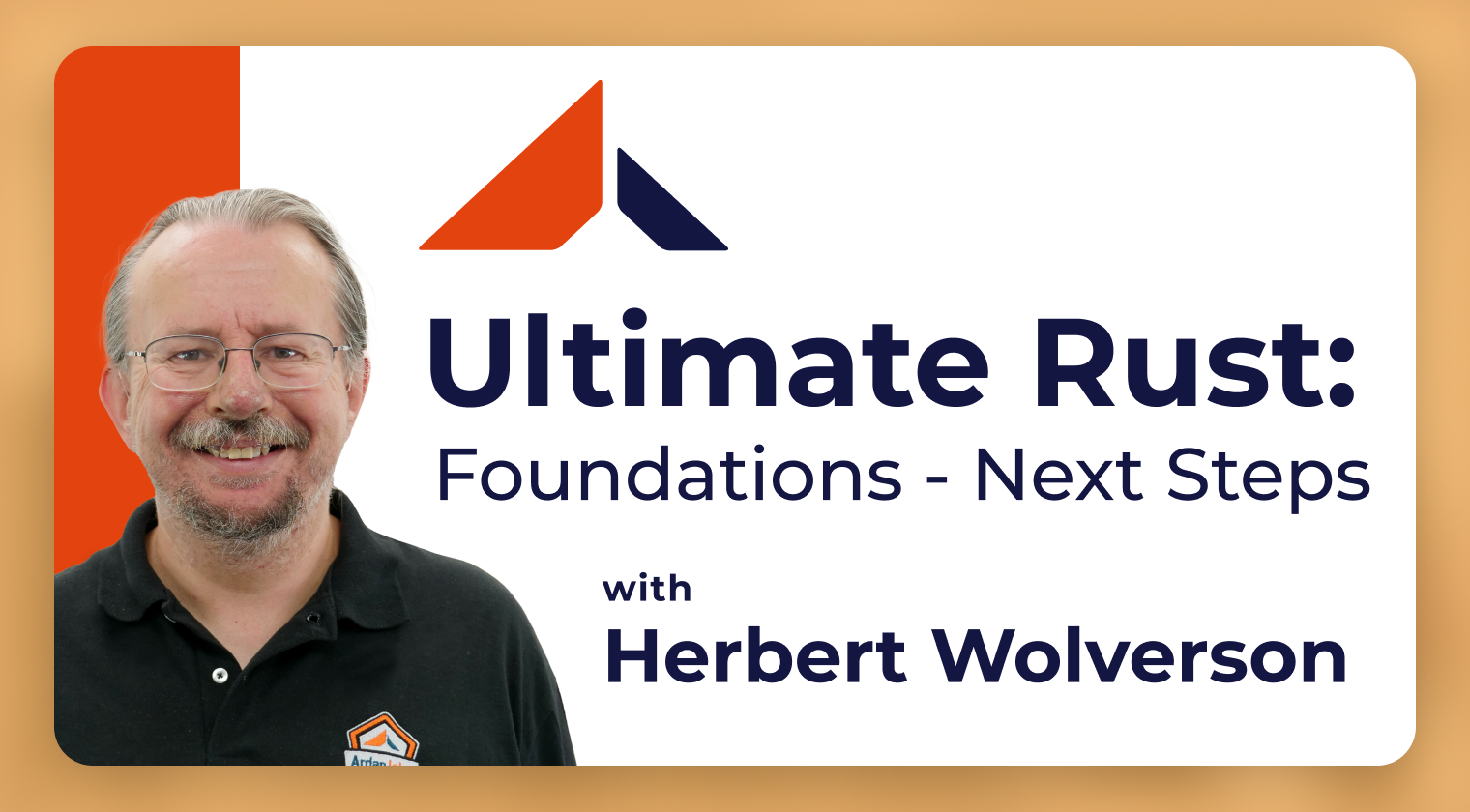
1+ total hours
Beginner
Intermediate
Ultimate Rust: Foundations - Next Steps
This course offers the next steps not covered in Ultimate Rust: Foundations that expands on and optimize what you've already built.
with: Herbert Wolverson
View Course Info

1+ total hours
Beginner
Intermediate
Ultimate Rust: Foundations - Next Steps
This course offers the next steps not covered in Ultimate Rust: Foundations that expands on and optimize what you've already built.
with: Herbert Wolverson
Course Introduction
This course offers the next steps not covered in Ultimate Rust: Foundations that expands on and optimizes what you’ve already built.
Note: All of our bundles are for a one-year subscription.
At the end of the subscription period, your membership does not automatically renew.
Course Outline
Ultimate Rust: Foundations - Next Steps
- 1.0 - Bi-Directional Communication
- 1.2 - Sending Commands & Prevent Unbounded Growth
- 1.3 - Giving the Collector a Diet
- 1.4 - Giving the Collector a Diet (Cont)
- 1.5 - Optimizing File Reading & Adapting Files In Flight
Why Engineers & Teams Trust Ardan Labs
From the Lab
Where ideas get tested and shared. From the Lab is your inside look at the tools, thinking, and tech powering our work in Go, Rust, and Kubernetes. Discover our technical blogs, engineering insights, and YouTube videos created to support the developer community.
Explore our content:
Range-Over Functions in Go
Updated on

Miki Tebeka
Should You Learn One Programming Language or Many? A Practical Guide for Software Engineers
Updated on

Ardan Labs










